The document summarizes updates and future plans for .NET Core and C#. Key points include:
- .NET Standard 2.0 provides over 32,000 APIs, allowing better cross-platform compatibility.
- C# 7.0 introduced features like tuples, pattern matching, and binary literals. Future versions will focus on smaller releases with opt-in features like recursive patterns and nullable reference types.
- The tooling ecosystem including Visual Studio and the dotnet CLI continue to improve with a shared SDK and common project format.
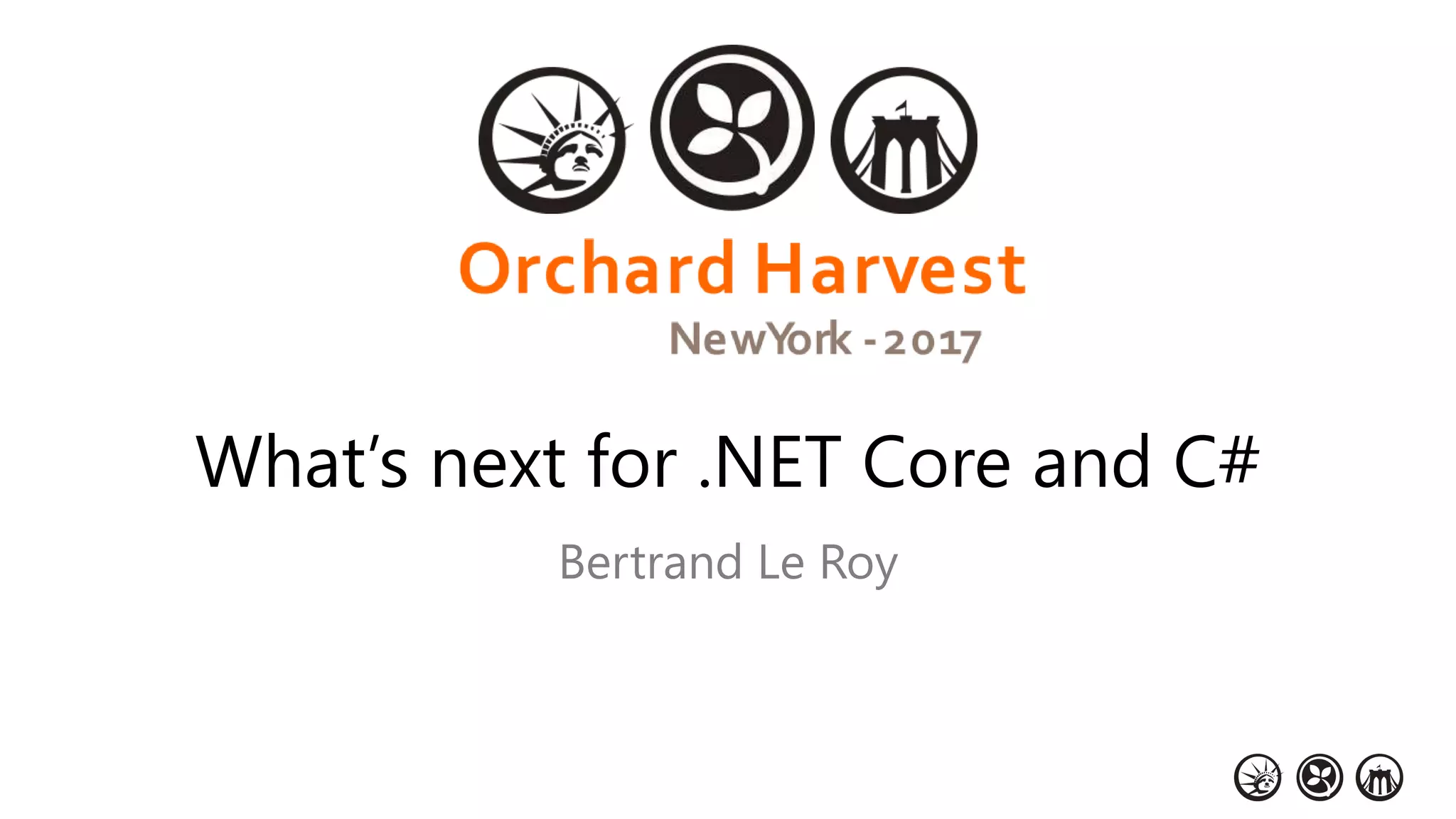
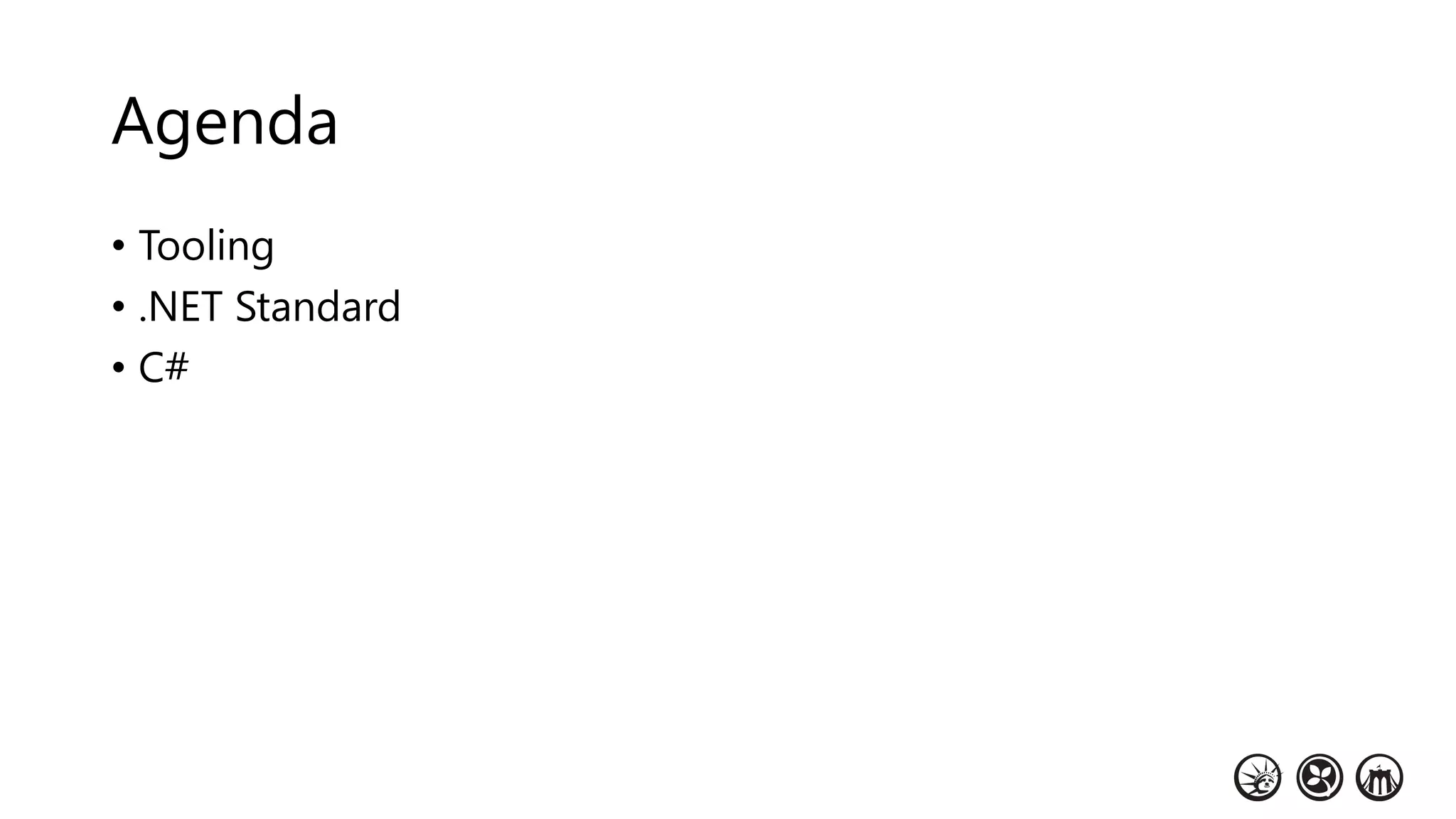
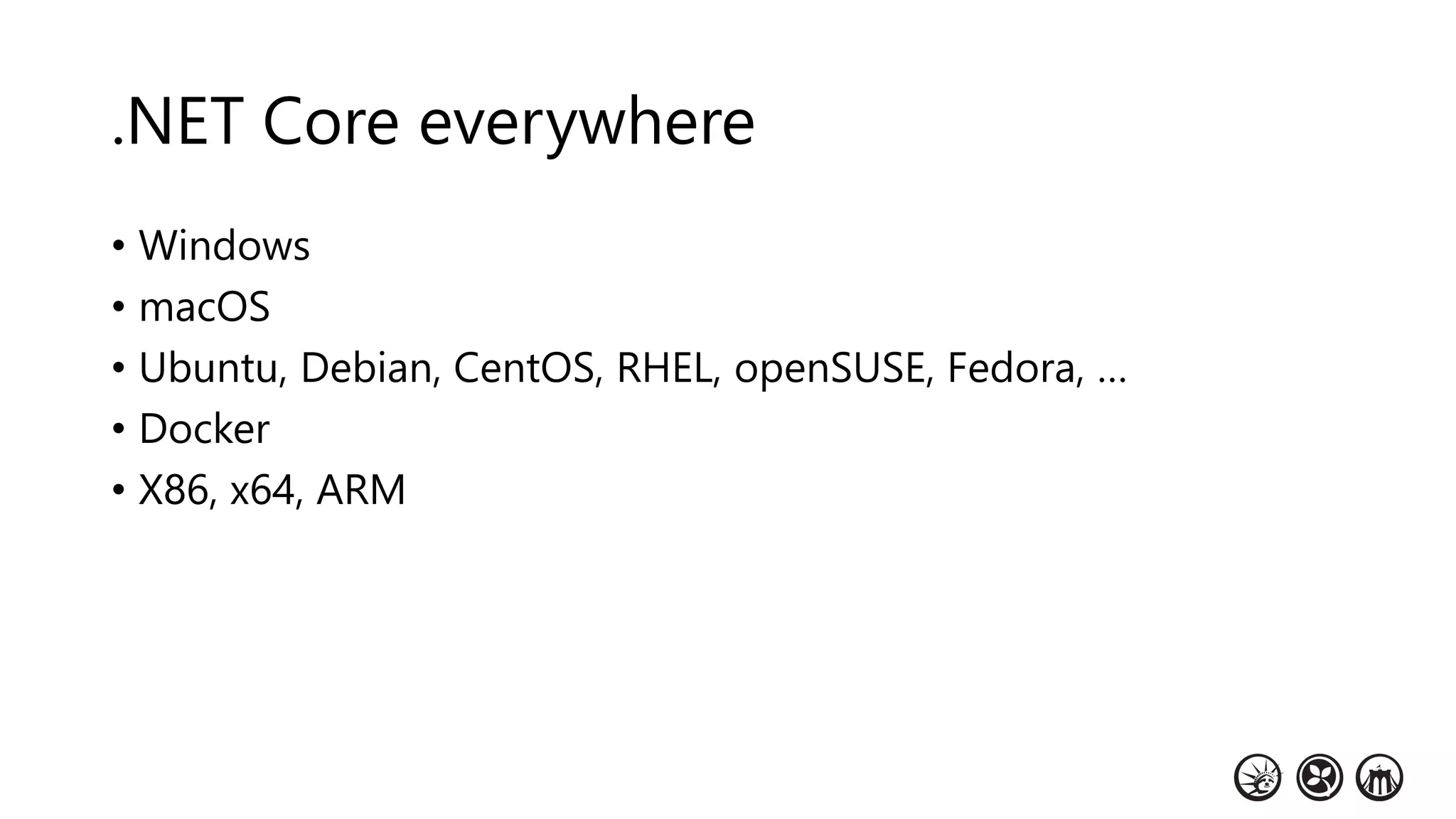
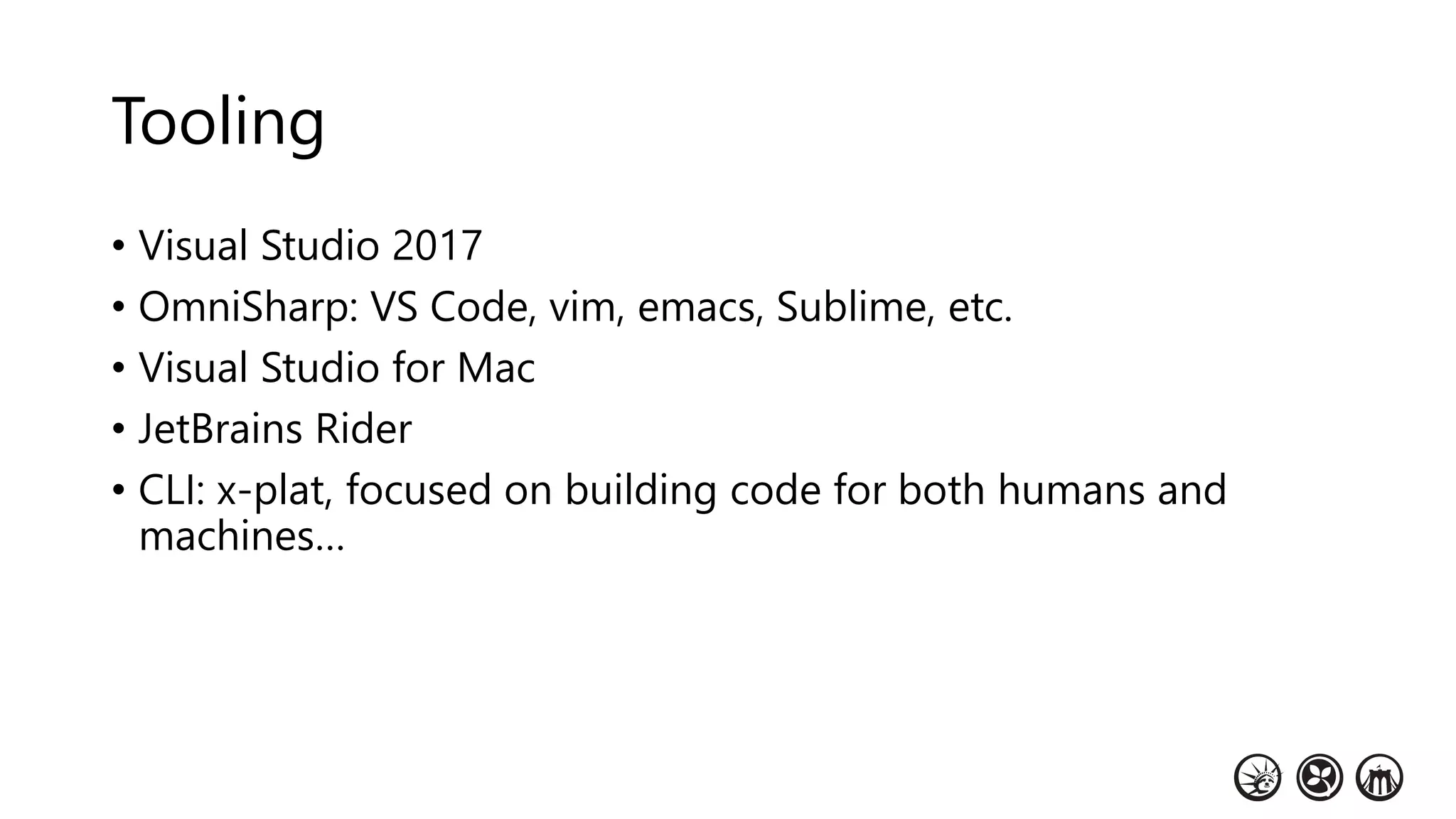
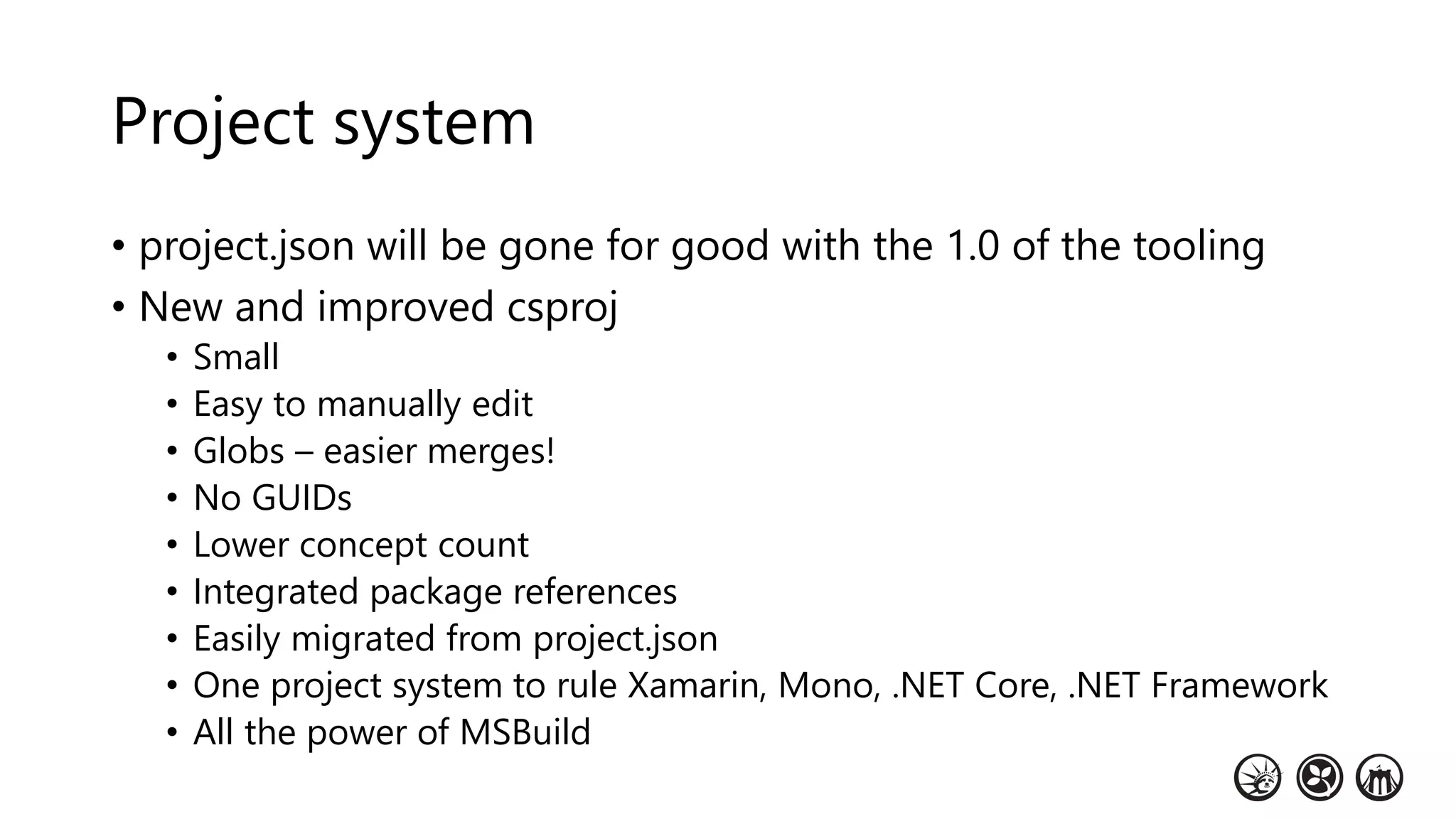
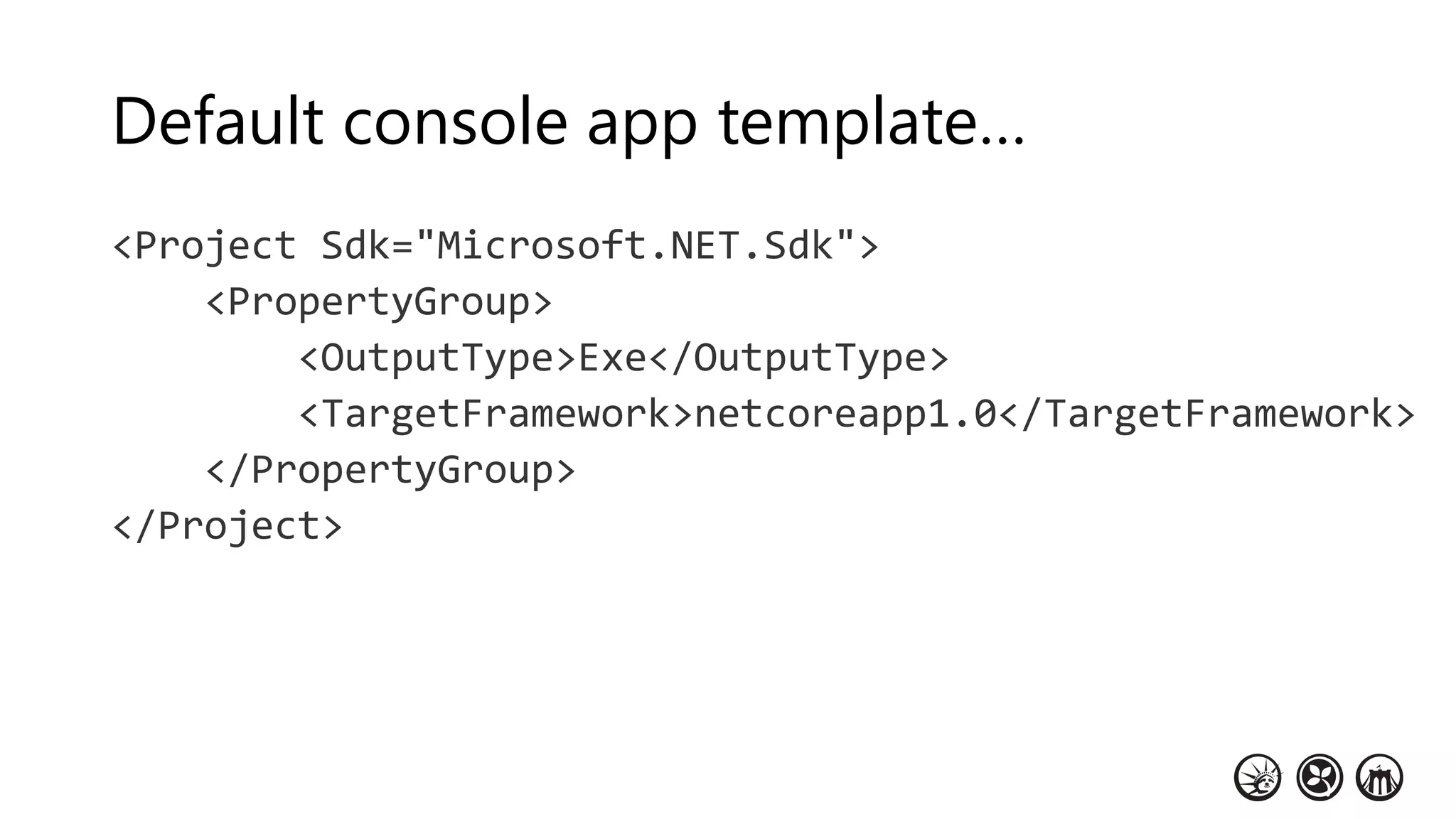
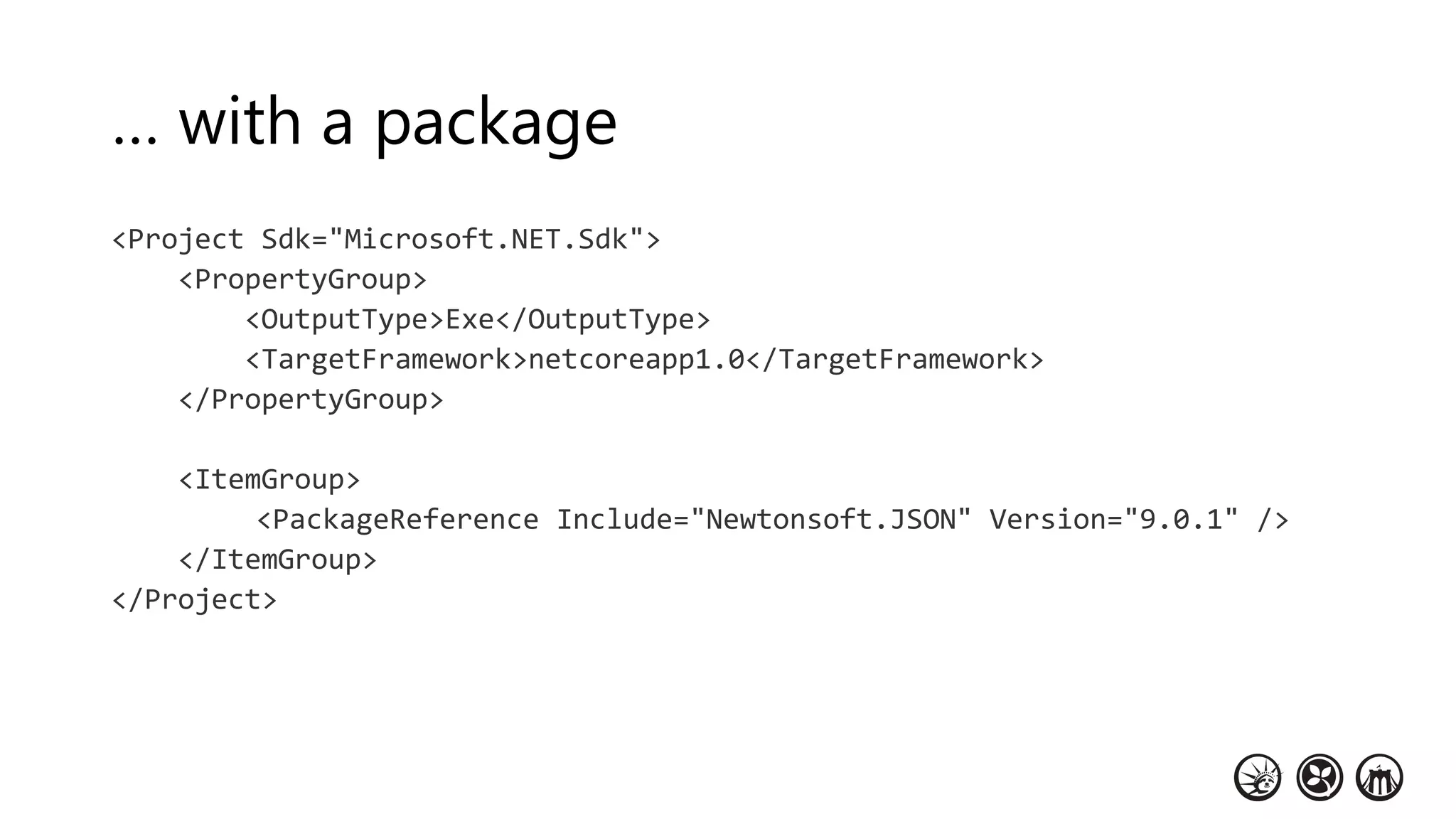
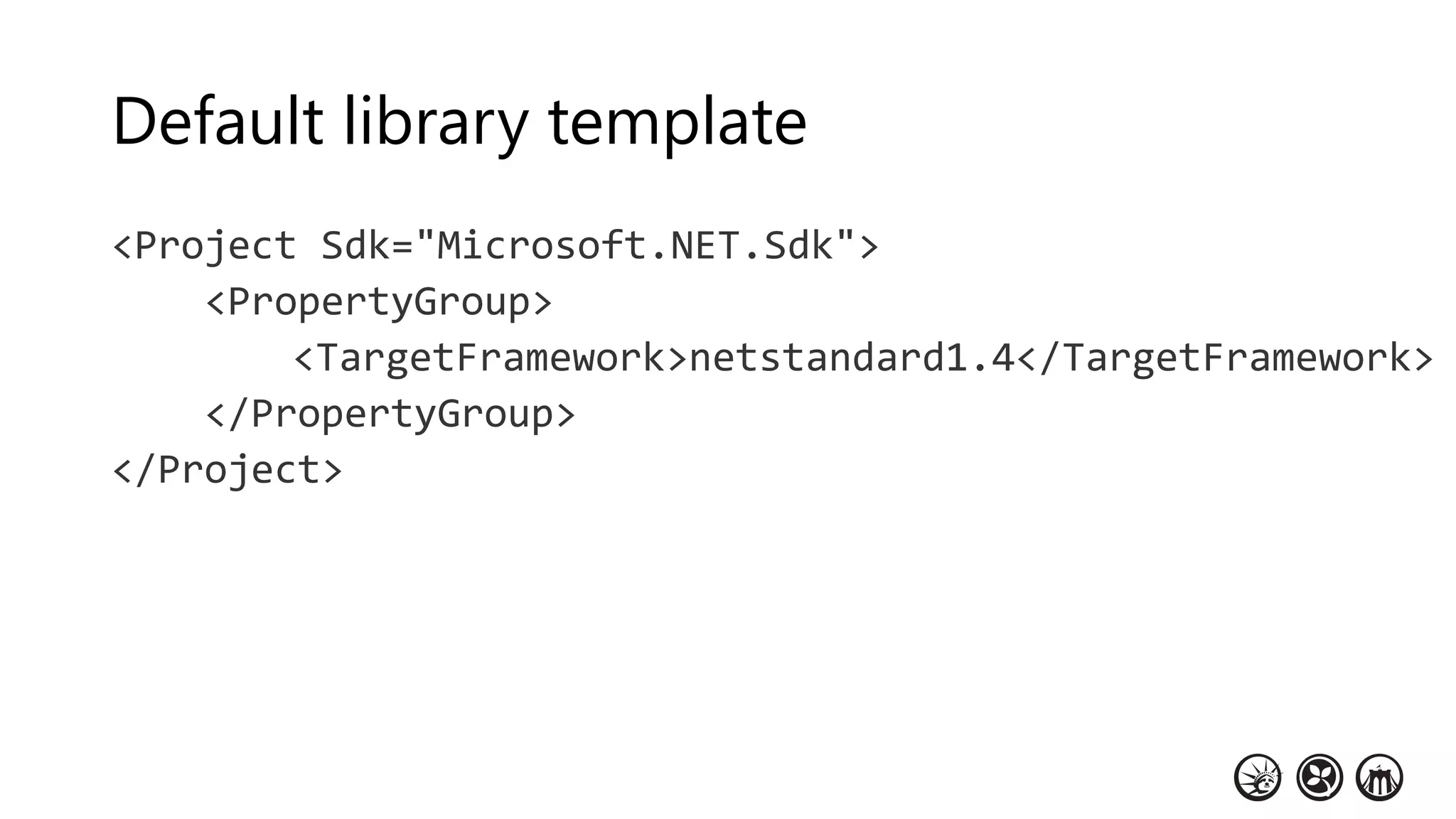
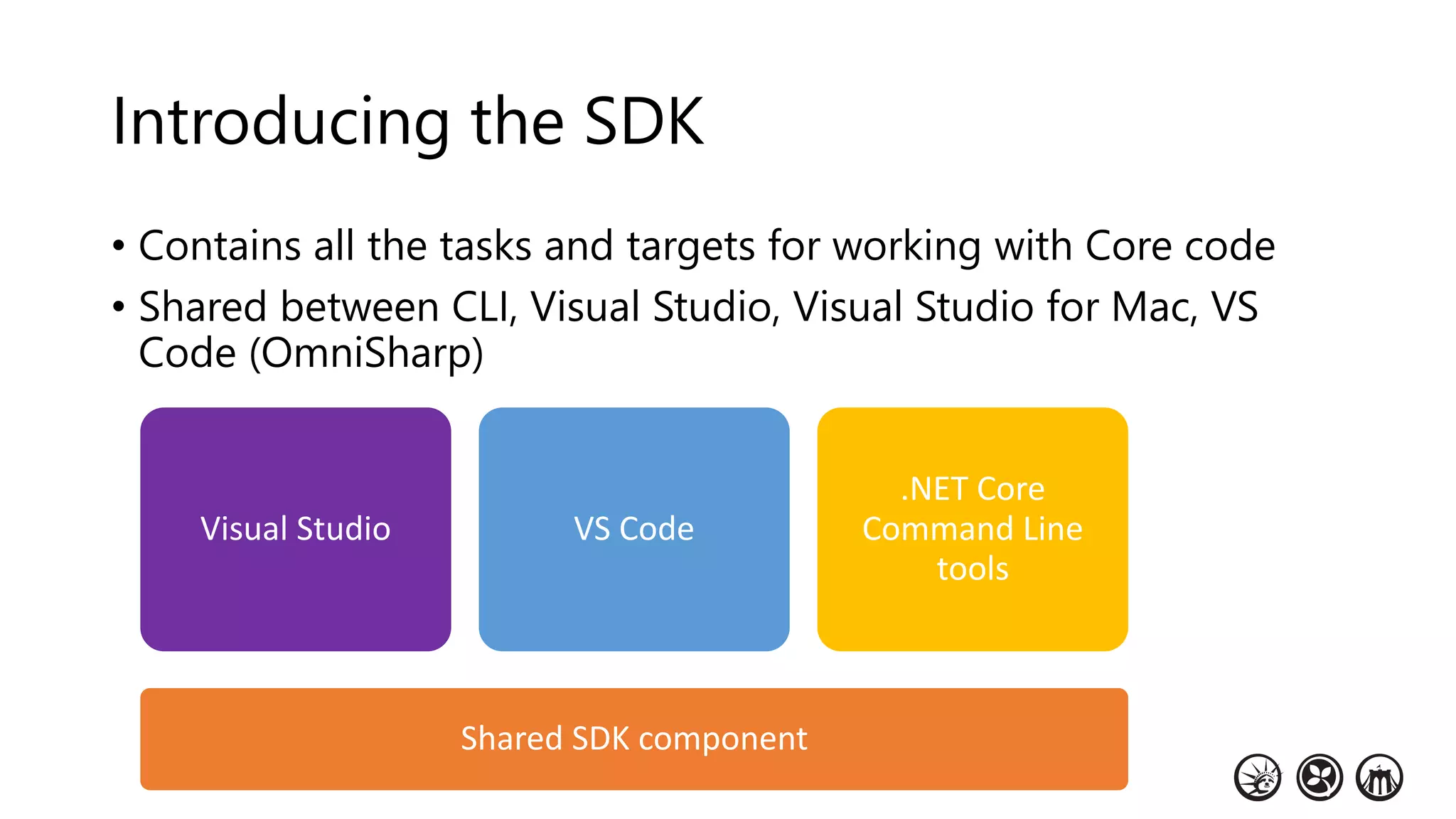
![CLI commands
dotnet build --output [path]
the driver verb (command) verb arguments](https://image.slidesharecdn.com/nextdotnetandcsharp-170301224114/75/Next-NET-and-C-10-2048.jpg)
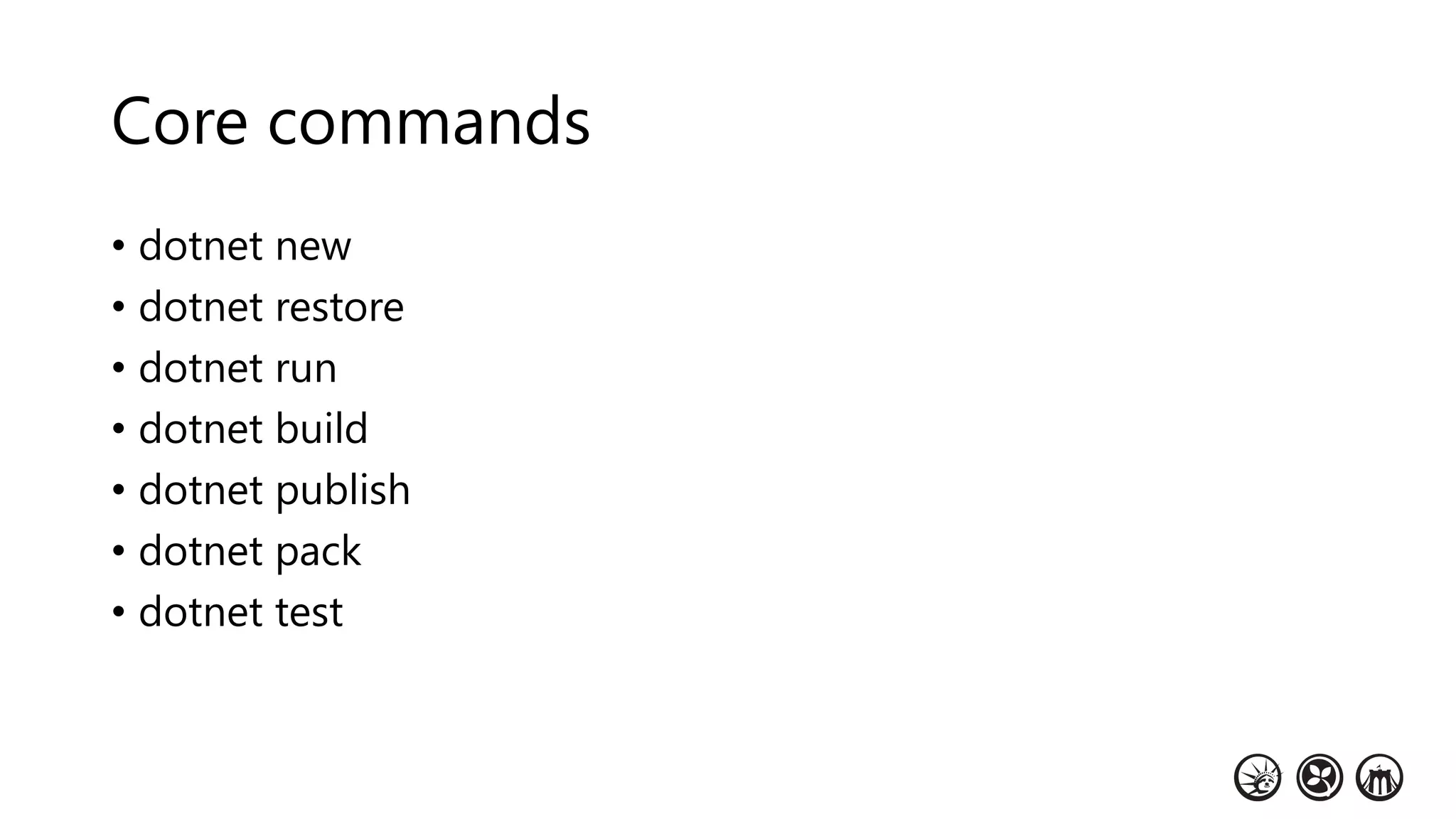
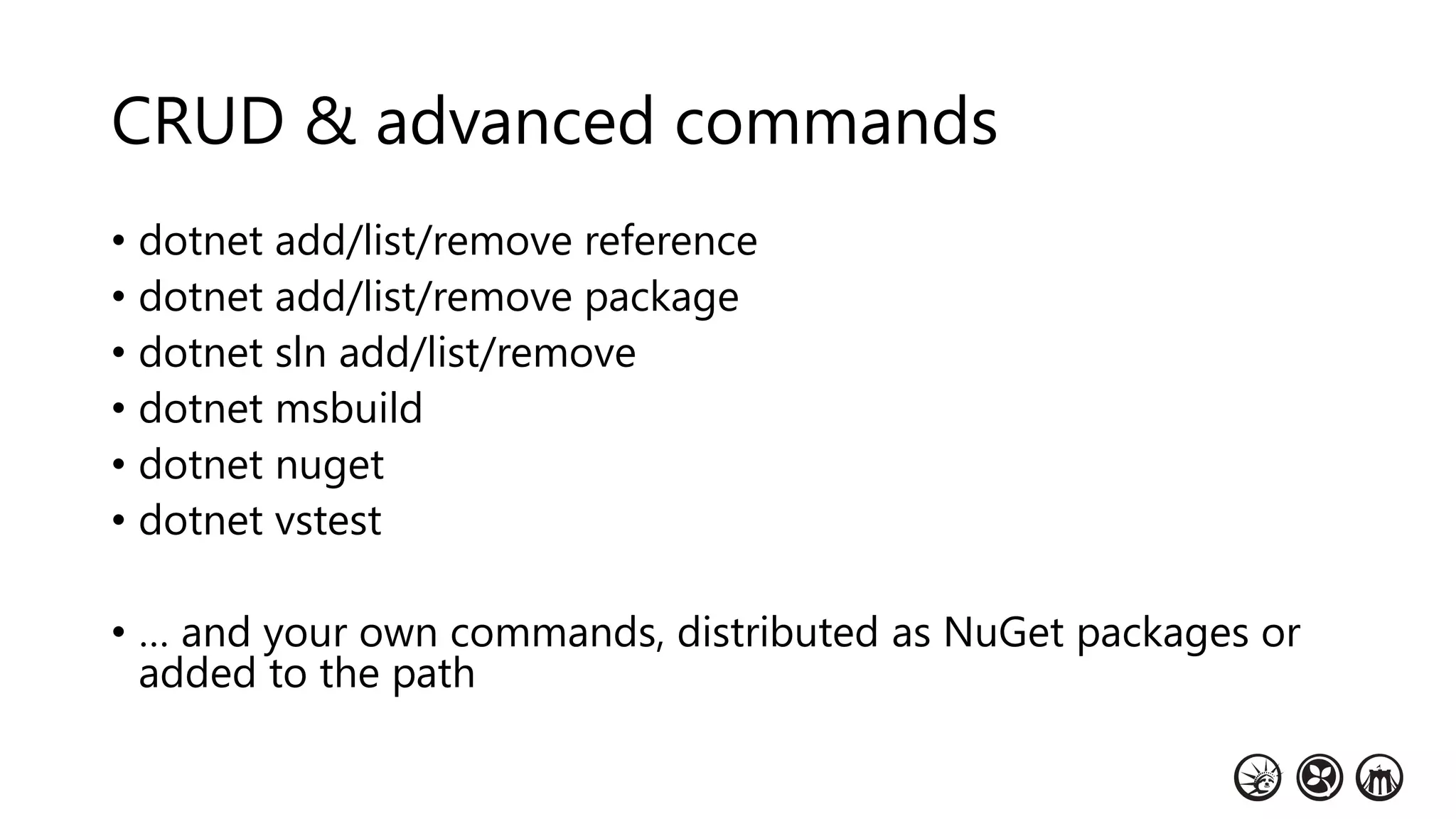
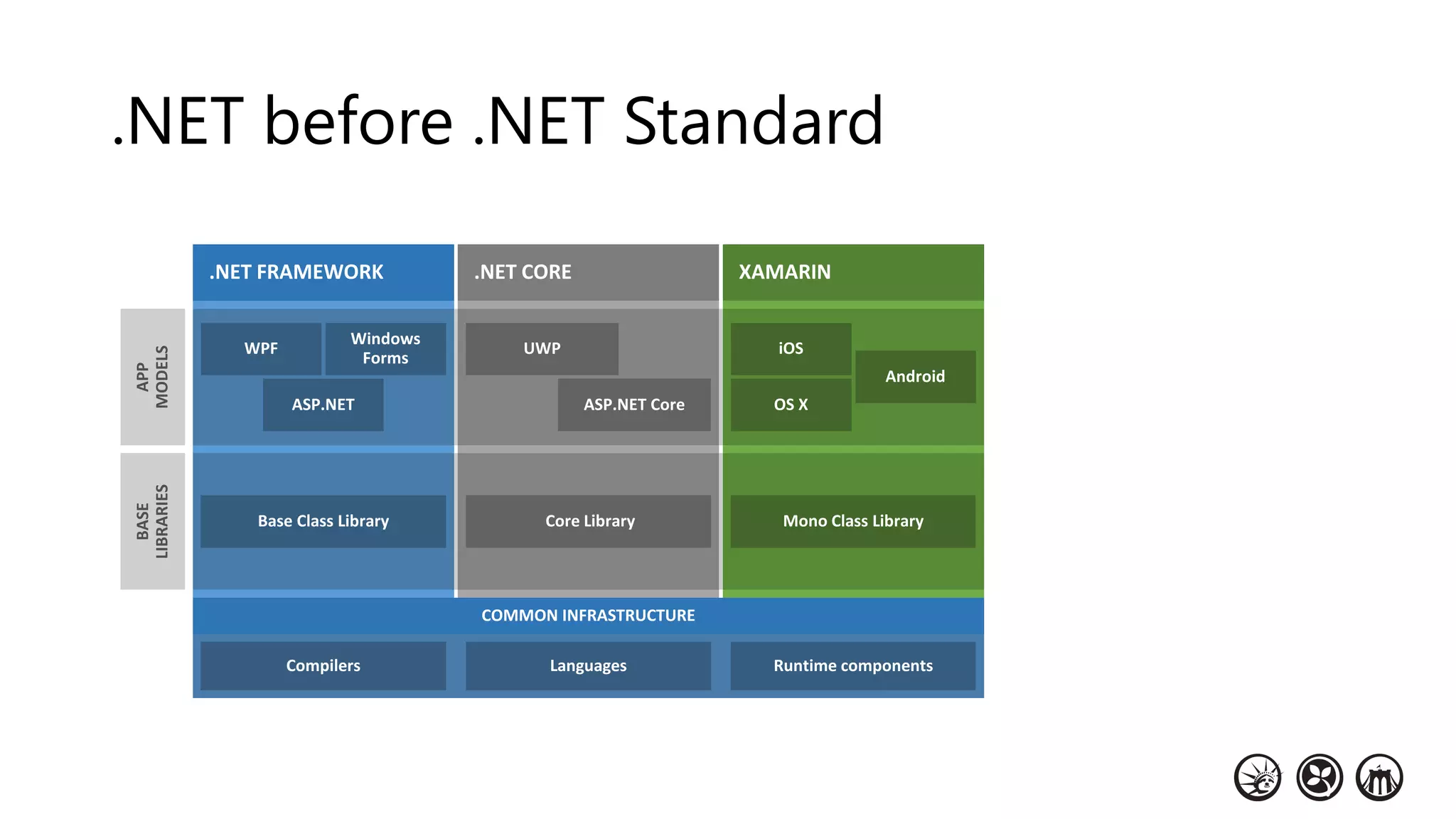
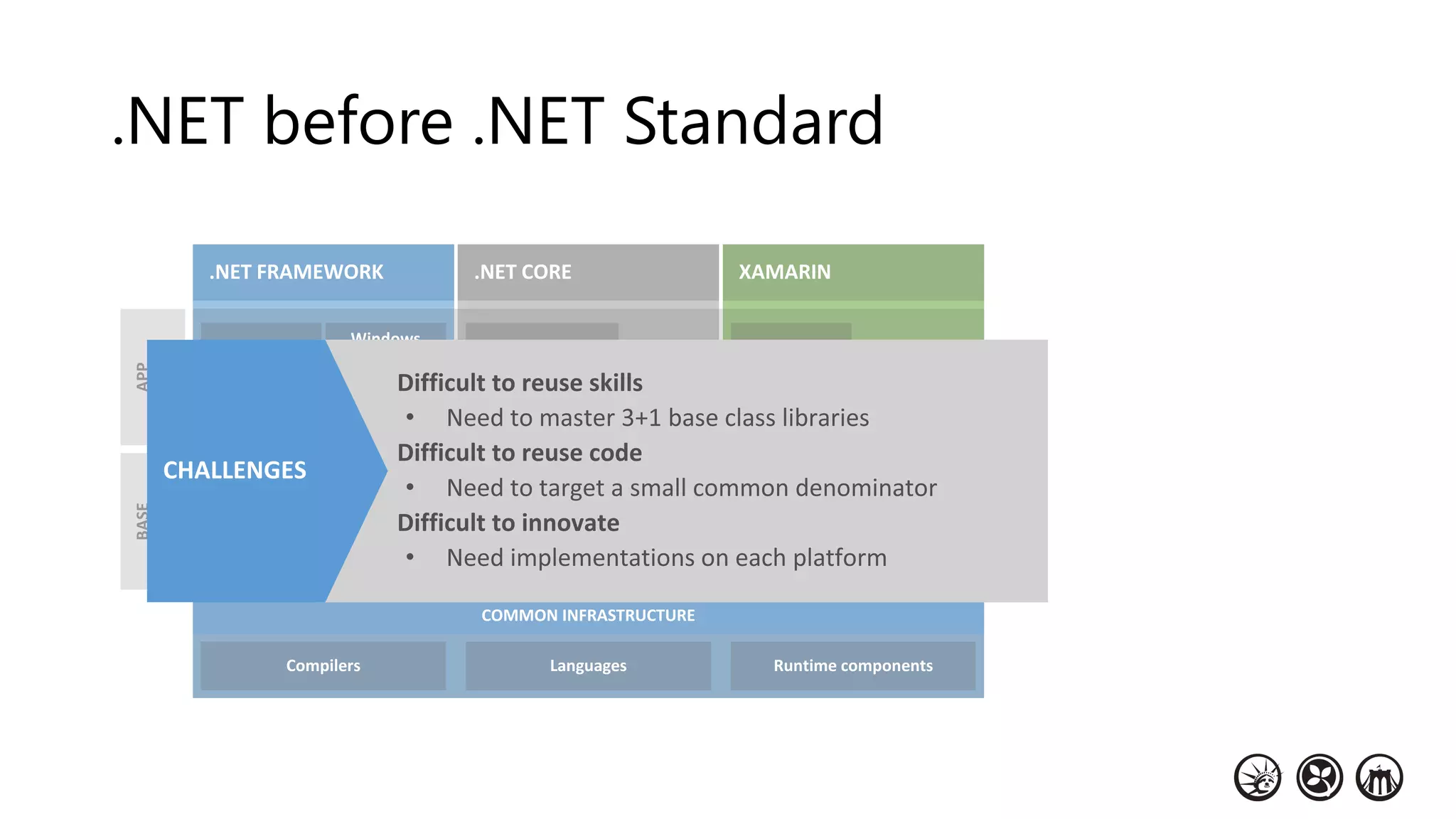
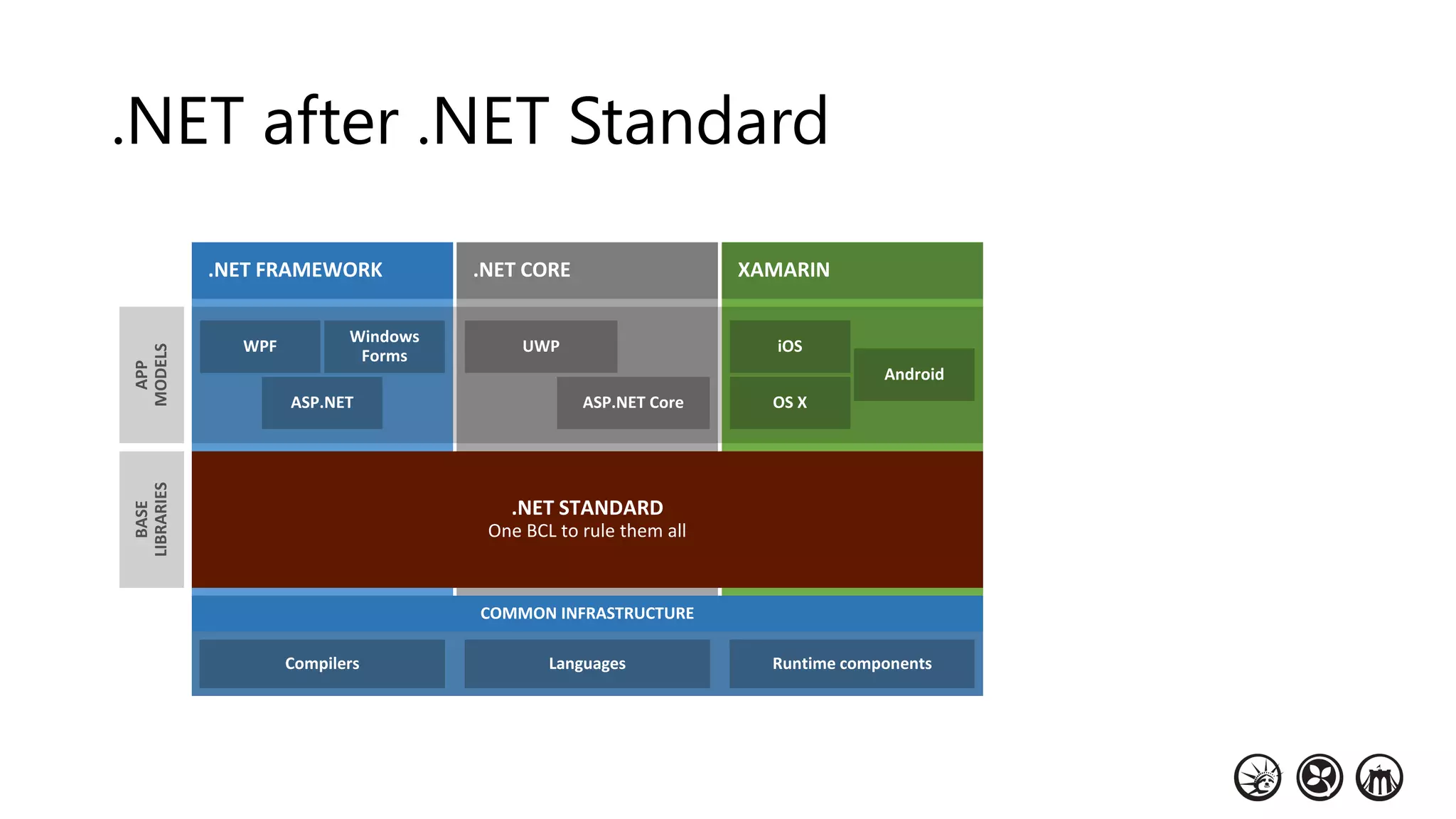
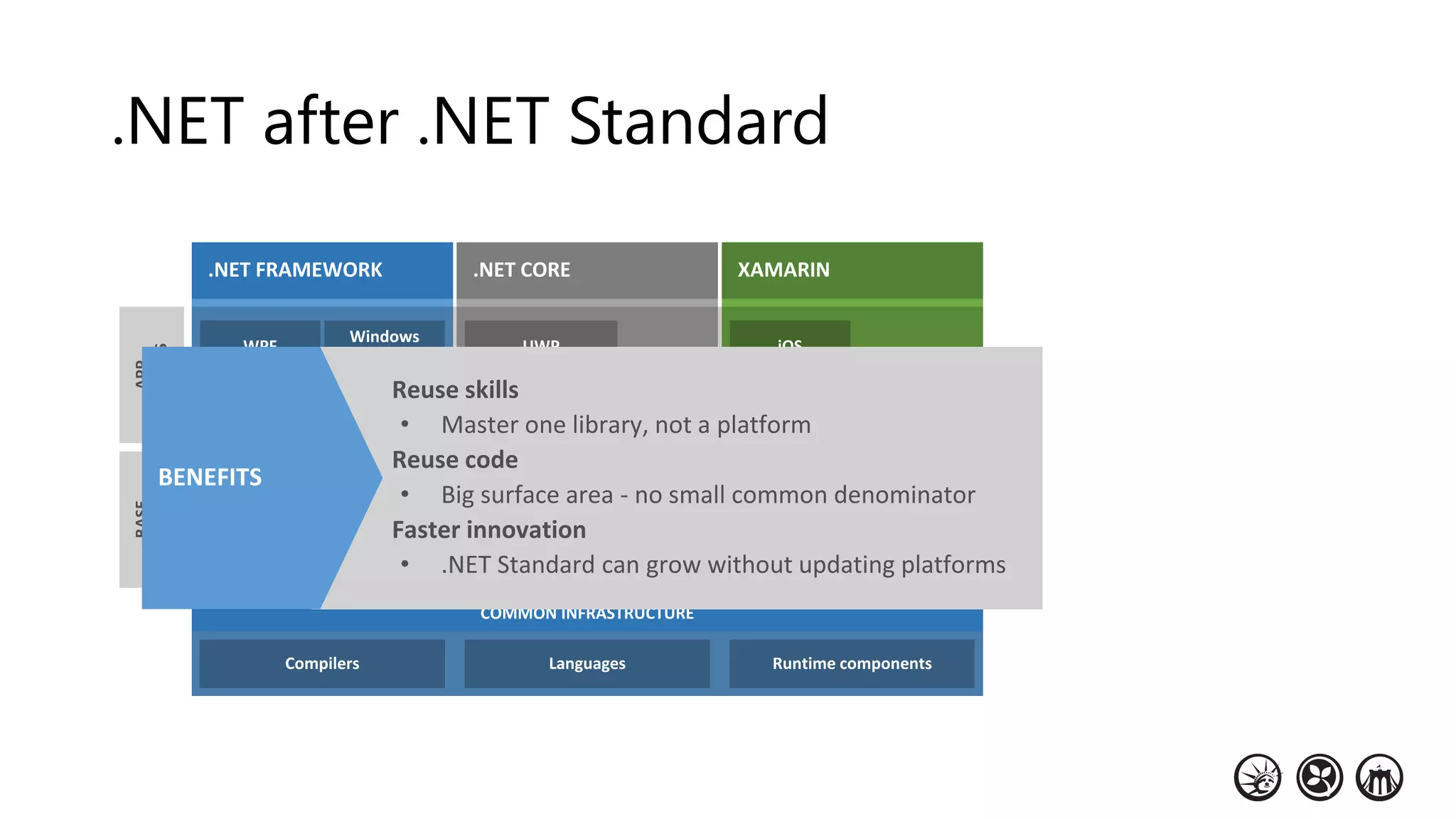
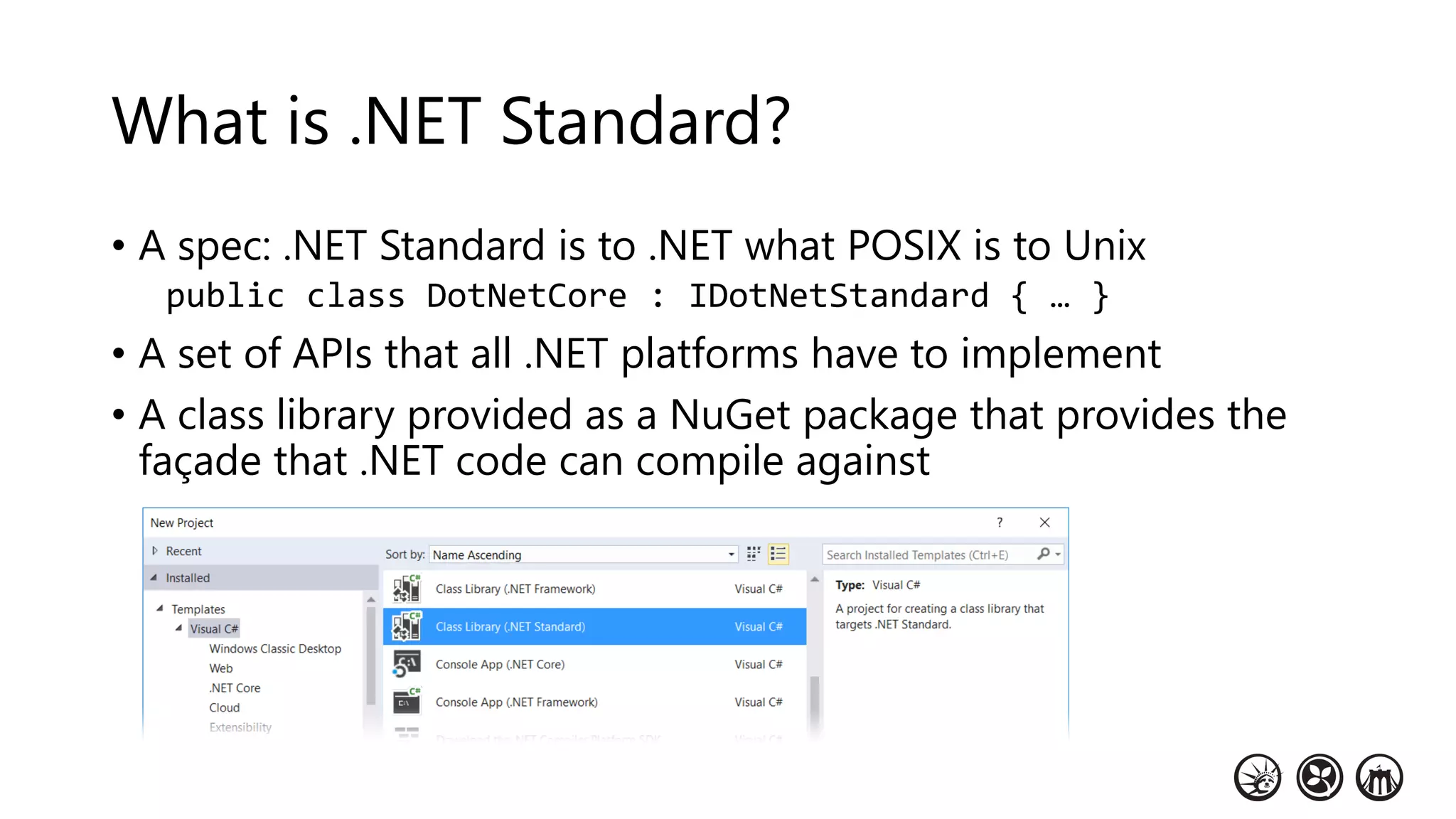
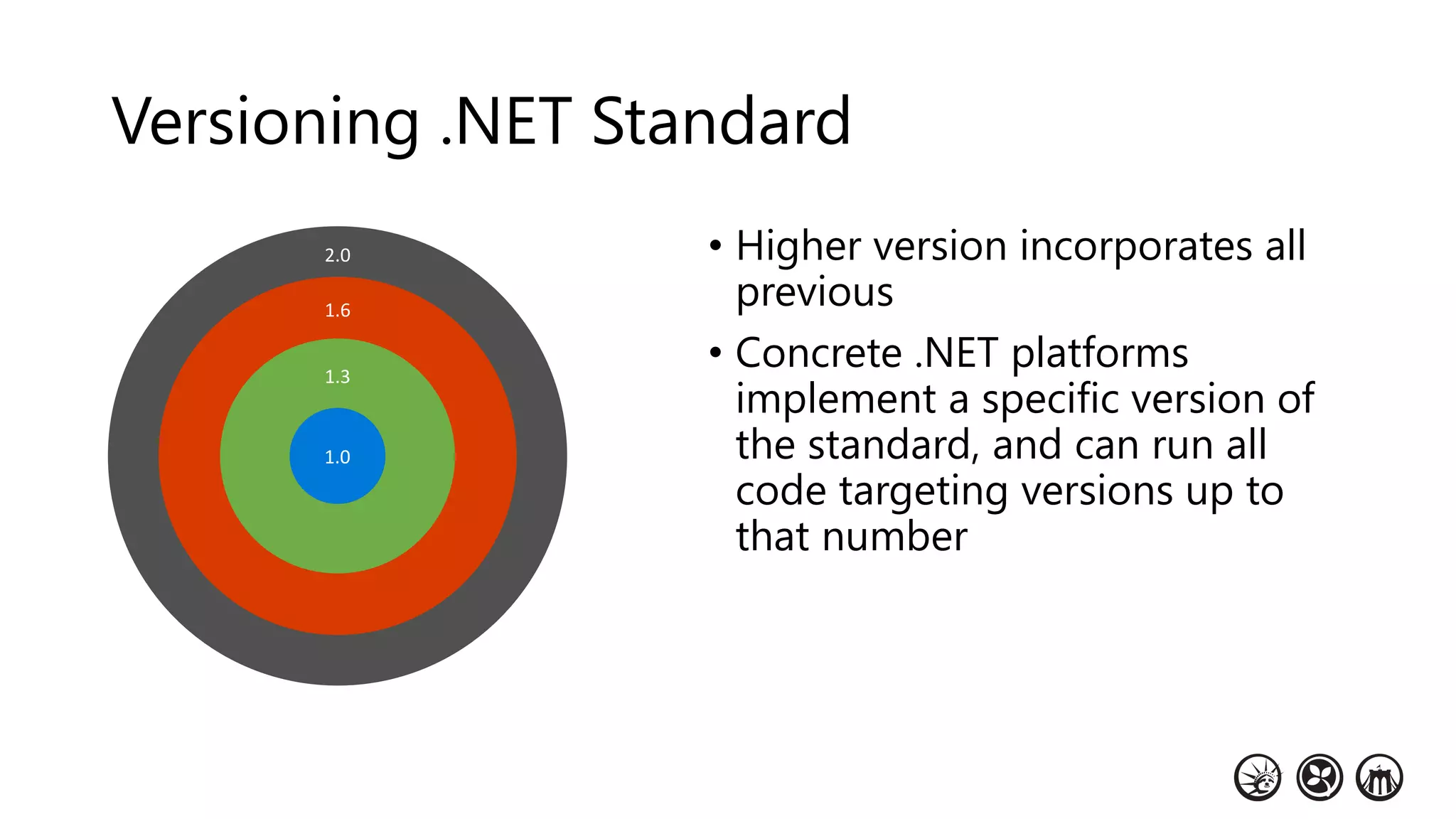
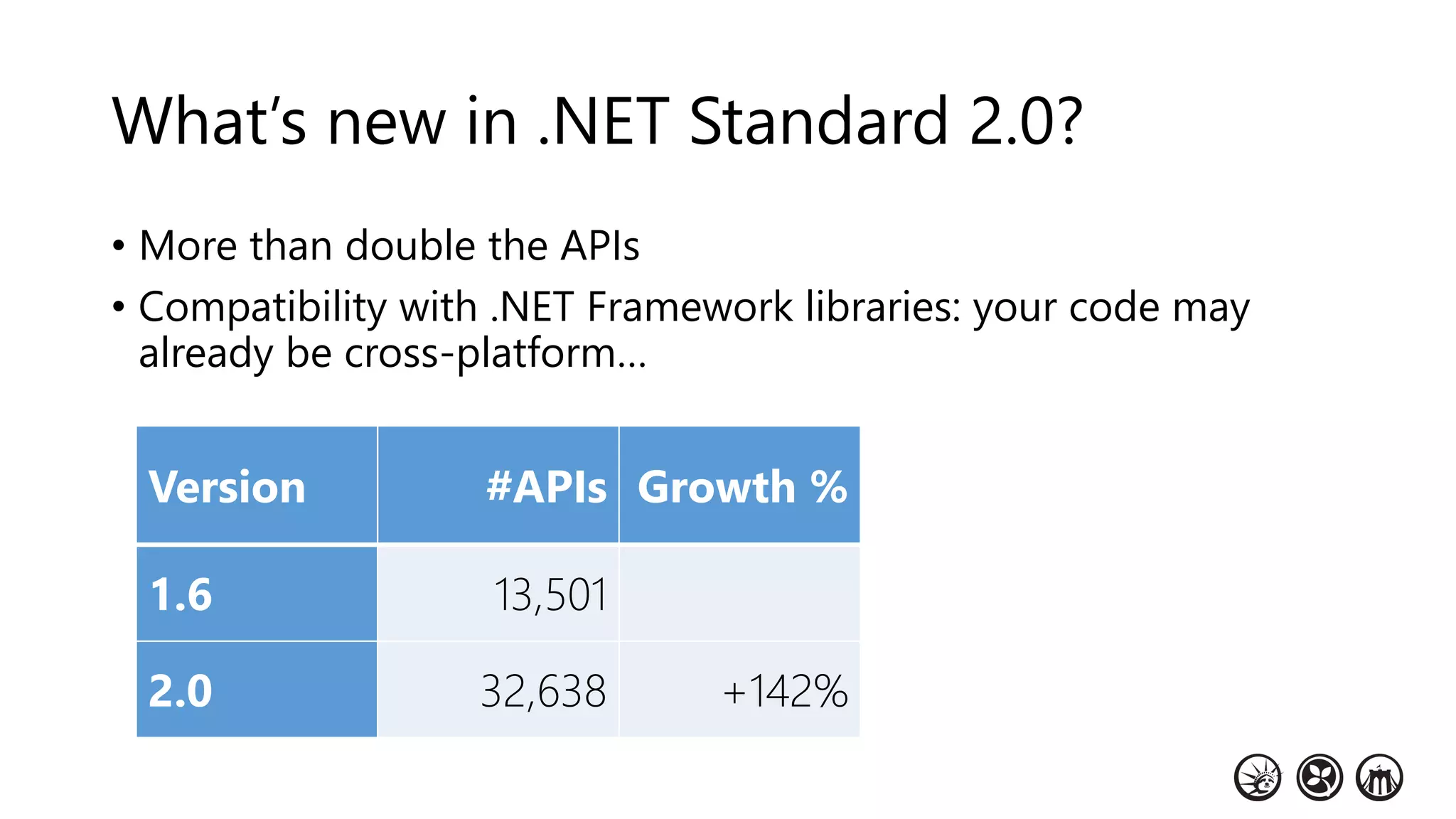
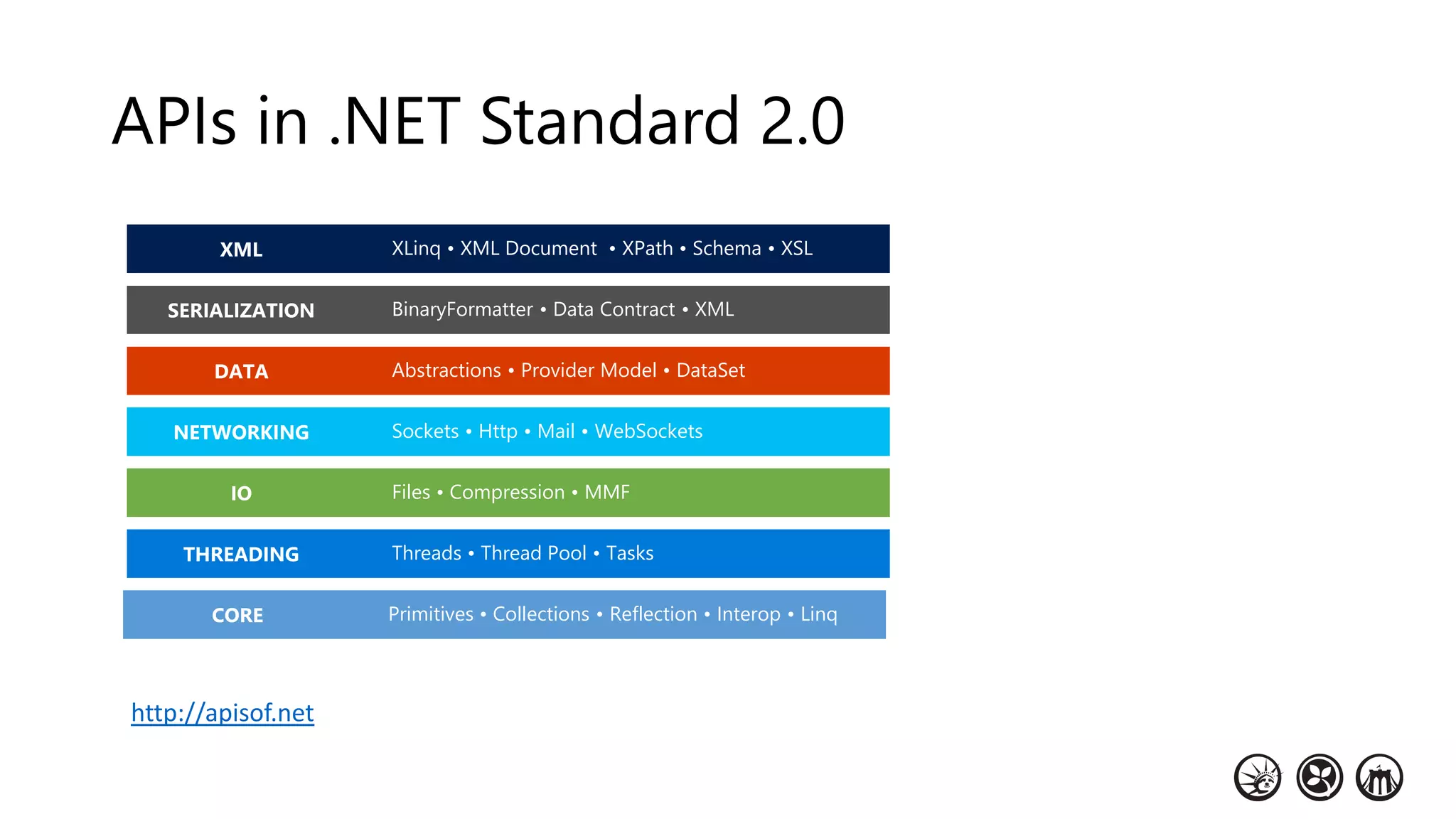
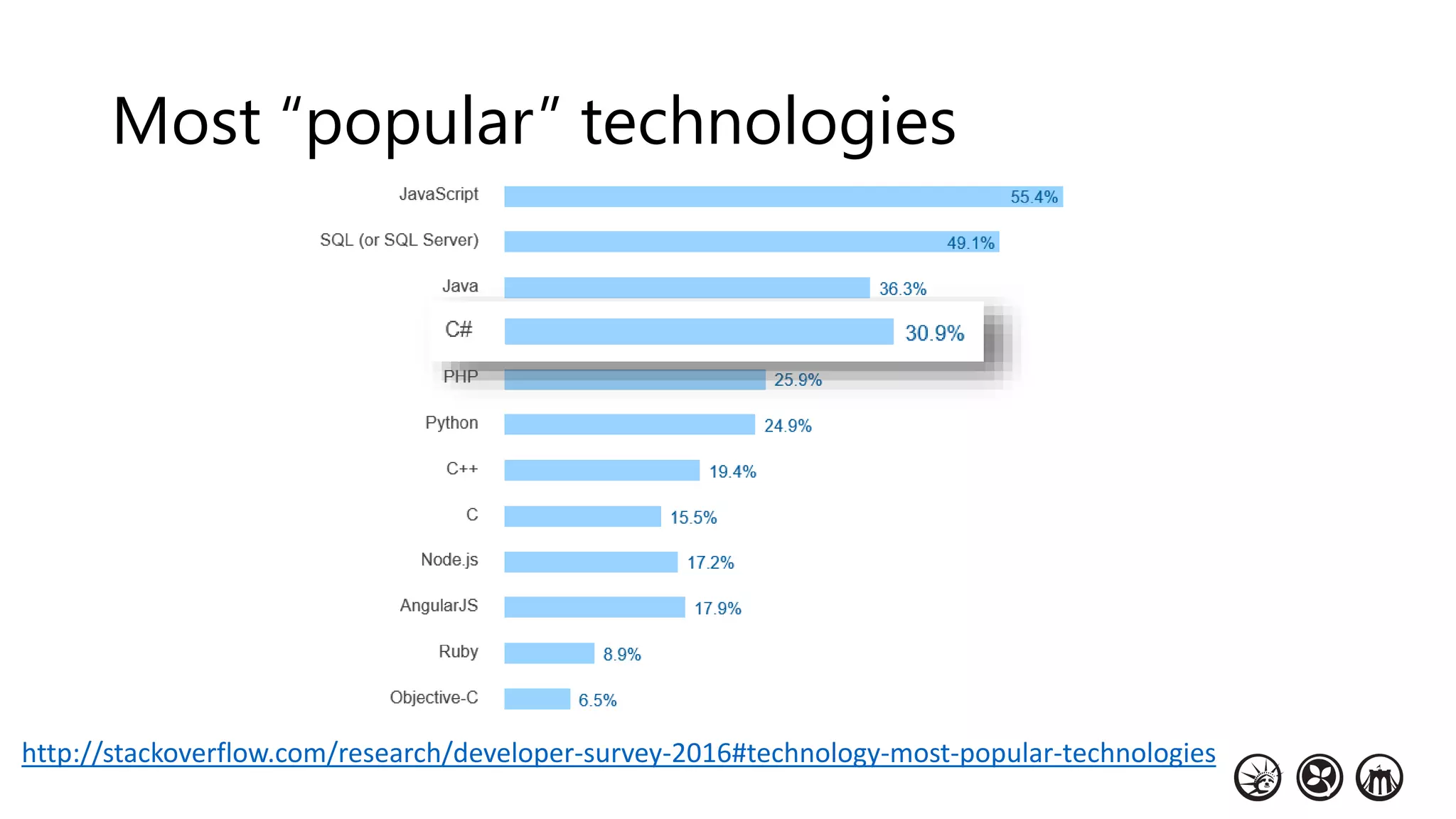
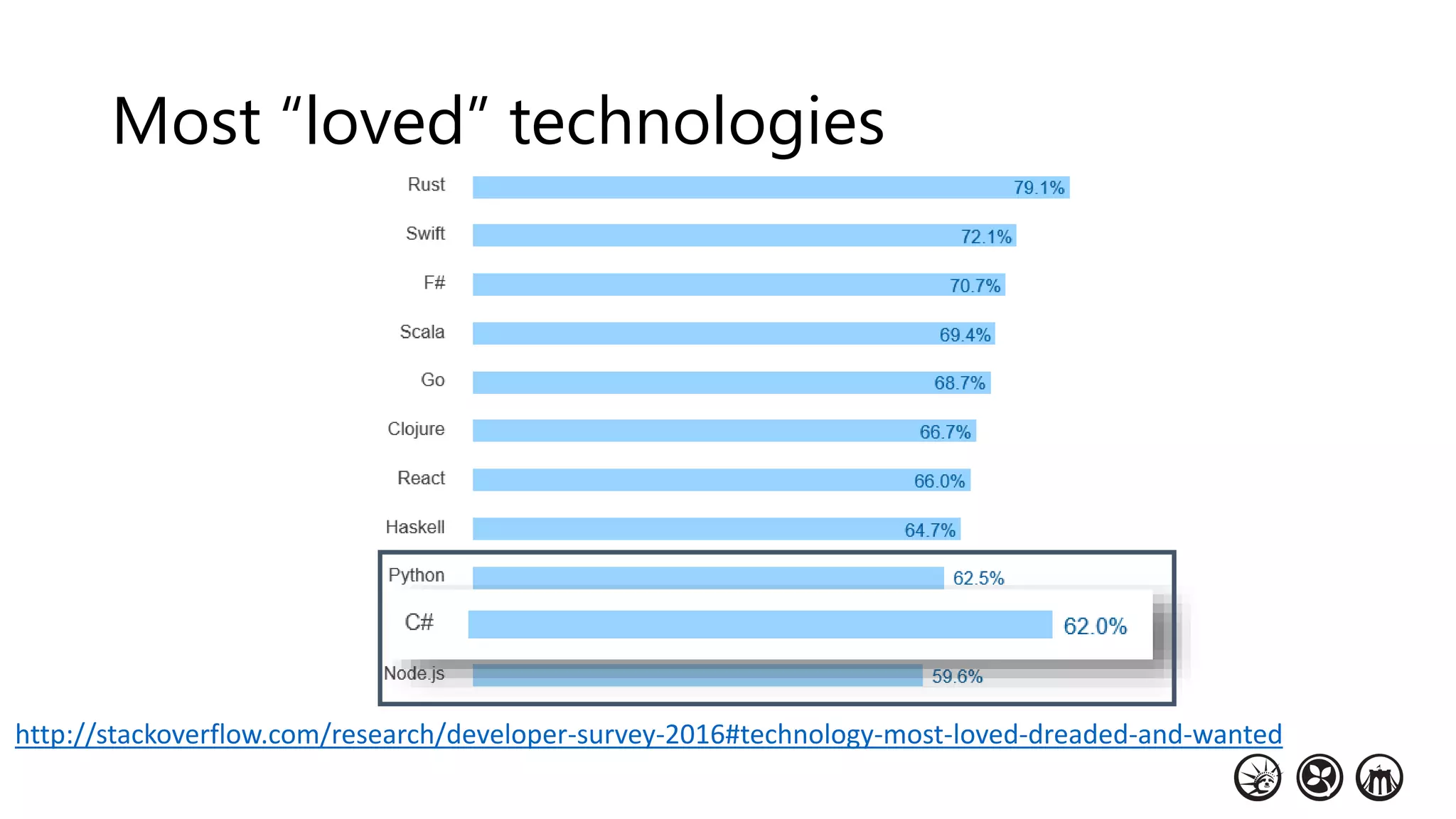
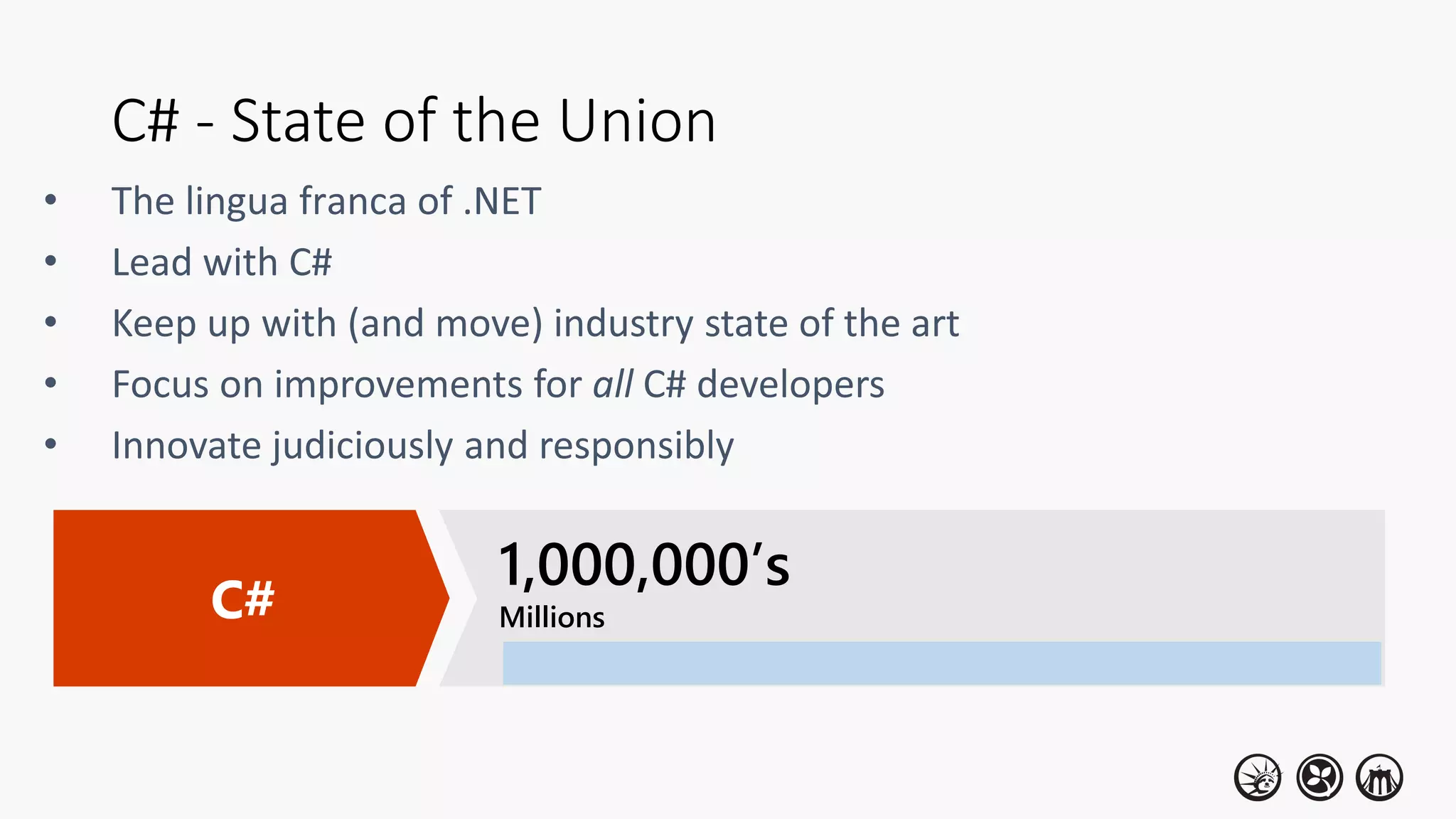
![C# 7.0 recap
static void Main(string[] args)
{
object[] numbers =
{ 0b1, 0b10, new object[] { 0b100, 0b1000 }, // binary literals
0b1_0000, 0b10_0000 }; // digit separators
var (sum, count) = Tally(numbers); // deconstruction
WriteLine($"Sum: {sum}, Count: {count}");
}](https://image.slidesharecdn.com/nextdotnetandcsharp-170301224114/75/Next-NET-and-C-24-2048.jpg)
![C# 7.0 recap
static (int sum, int count) Tally(object[] values) // tuple types
{
var r = (s: 0, c: 0); // tuple literals
void Add(int s, int c) { r.s += s, r.c += c; } // local functions
foreach (var v in values)
{
switch (v) // switch on any value
{
case int i: // type patterns
Add(i, 1);
break;
case object[] a when a.Length > 0: // case conditions
var t = Tally(a);
Add(t.sum, t.count);
break;
}
}
return r;
}](https://image.slidesharecdn.com/nextdotnetandcsharp-170301224114/75/Next-NET-and-C-25-2048.jpg)
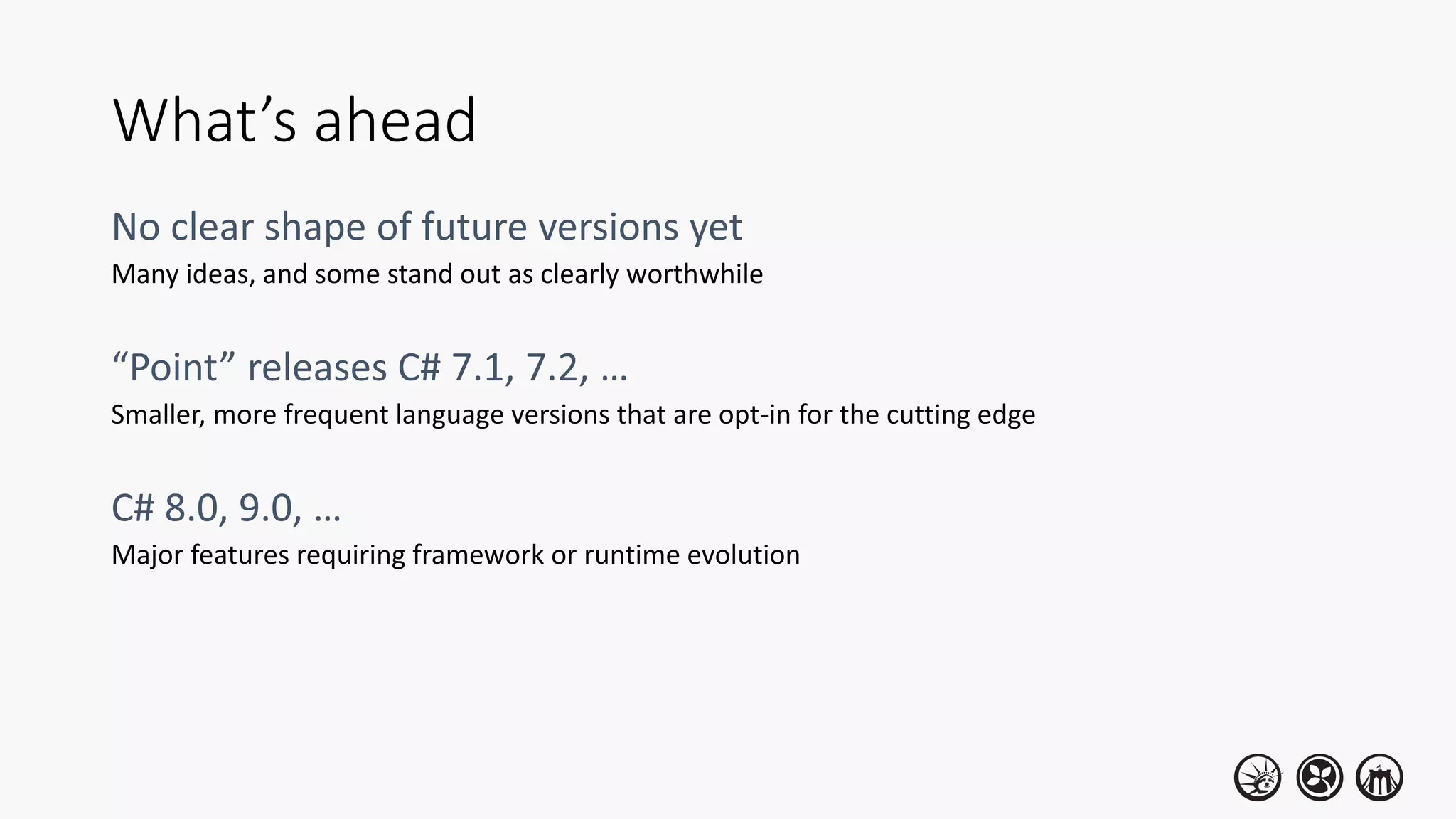
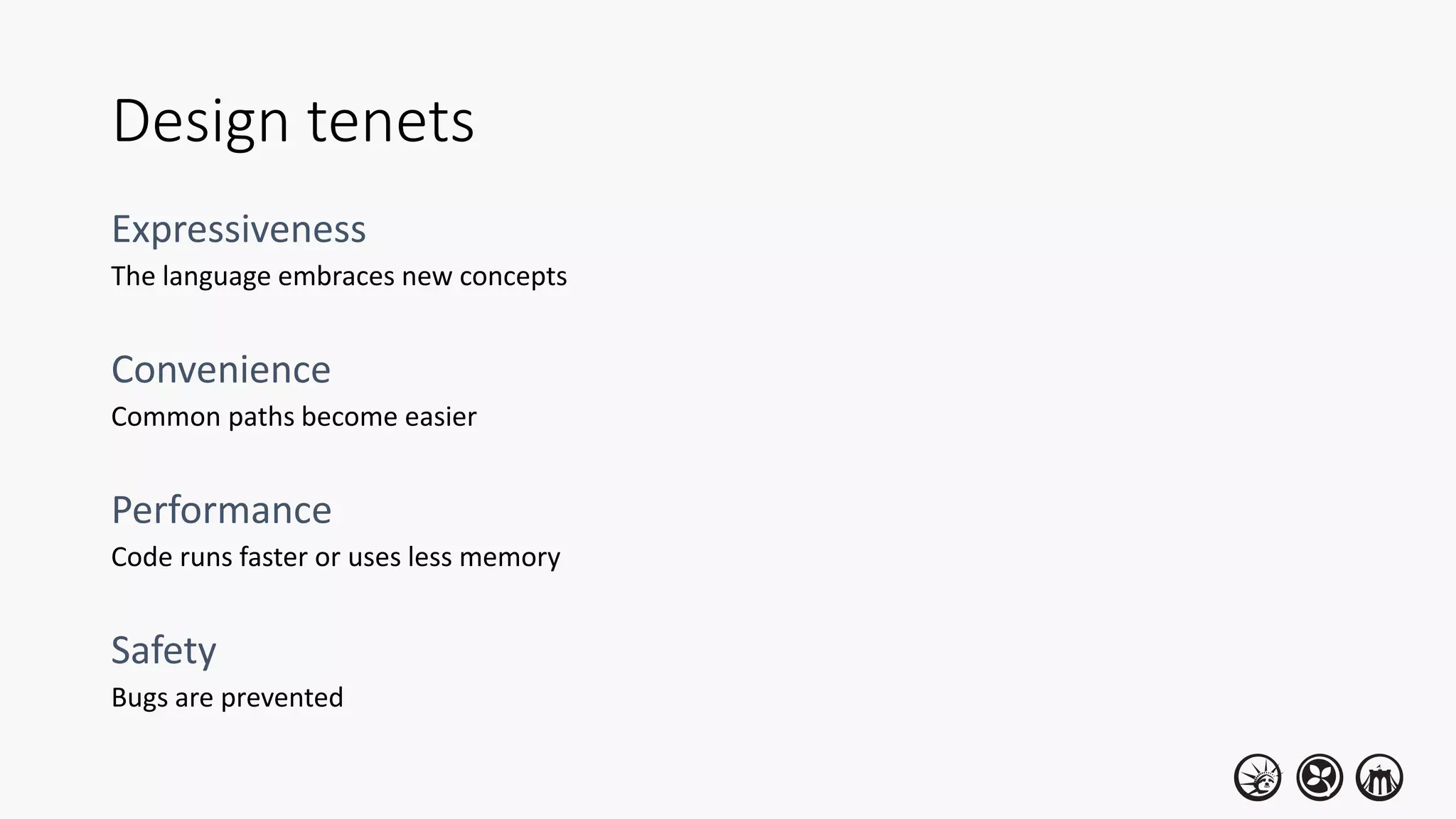
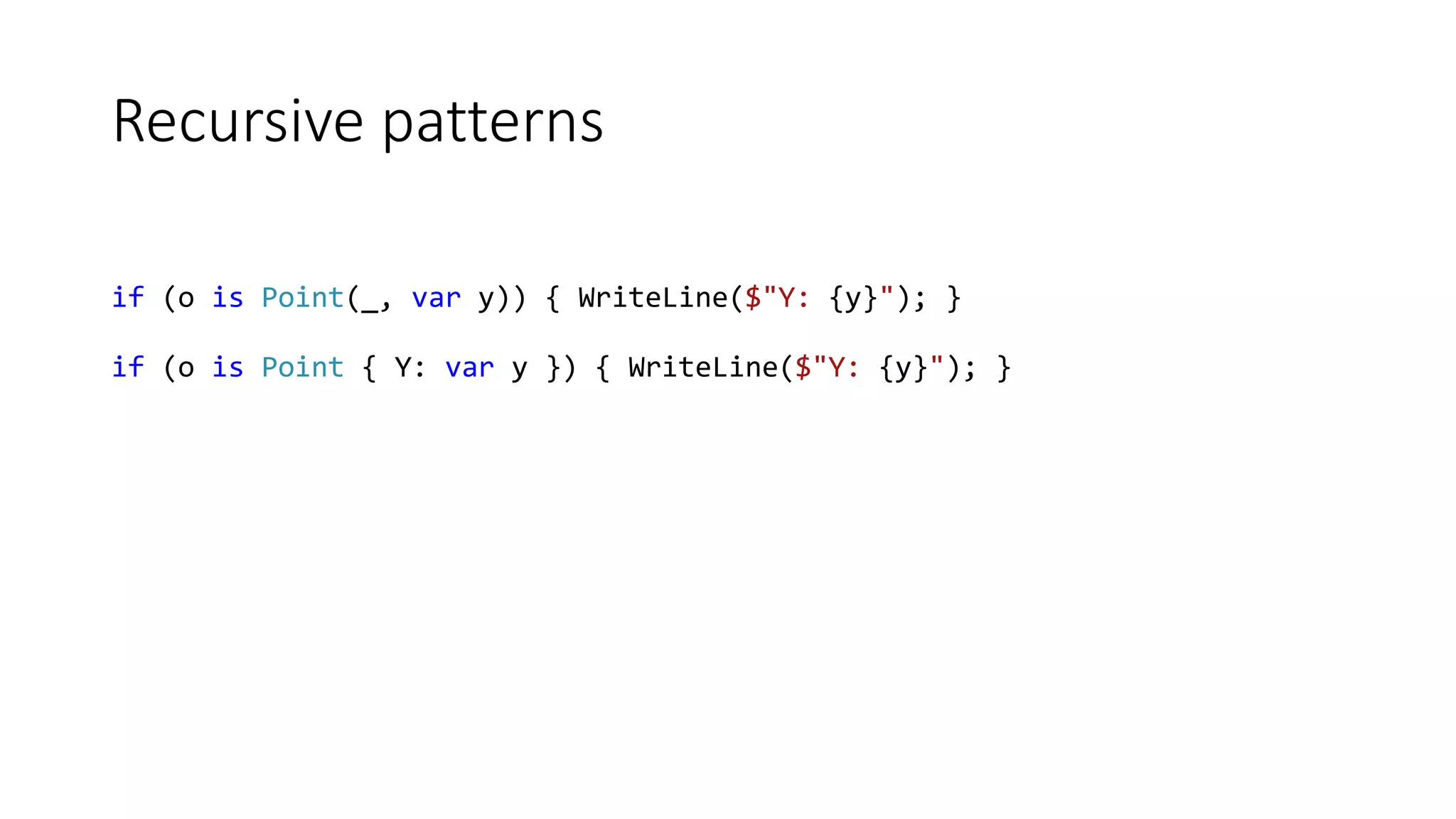
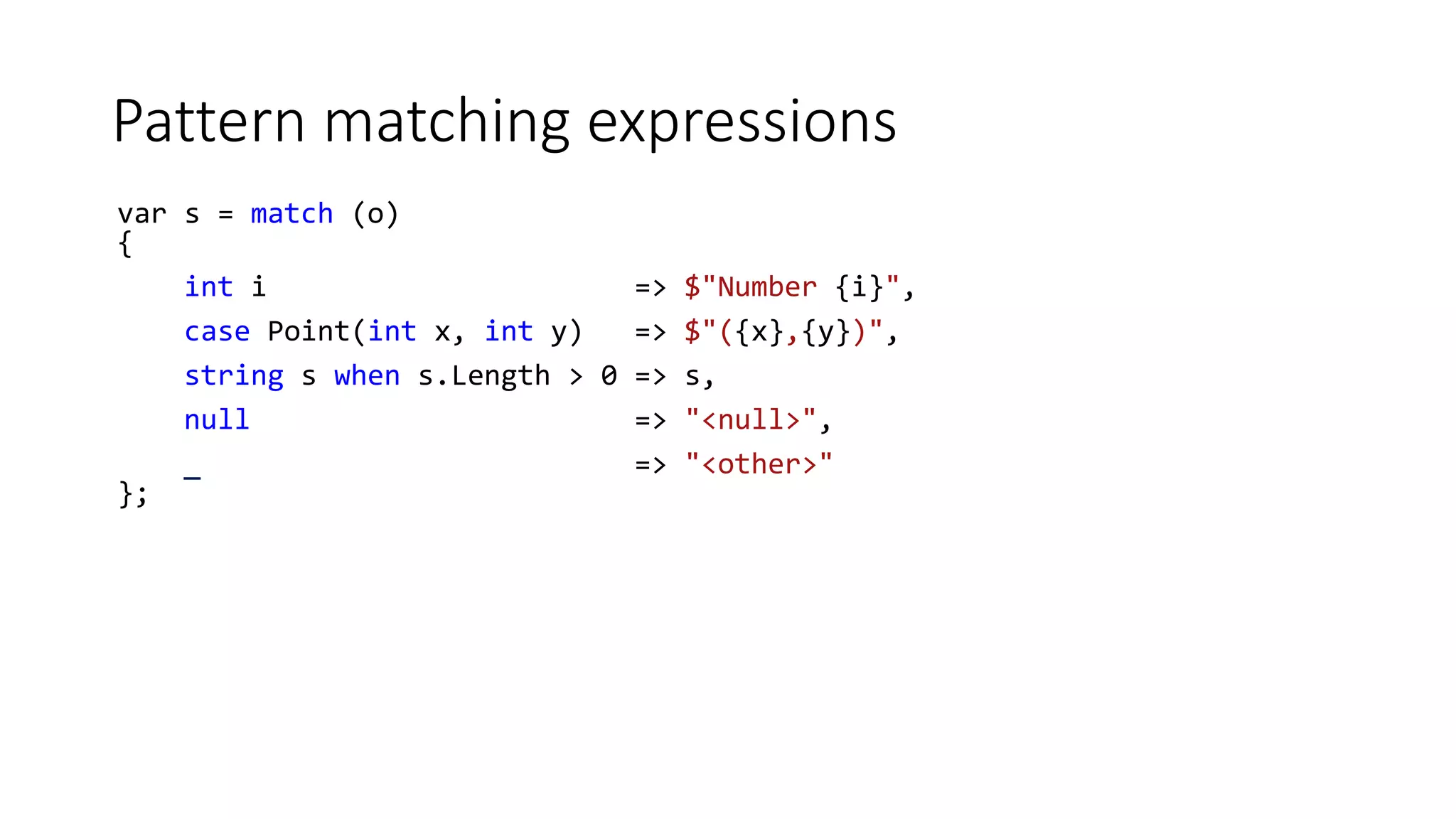
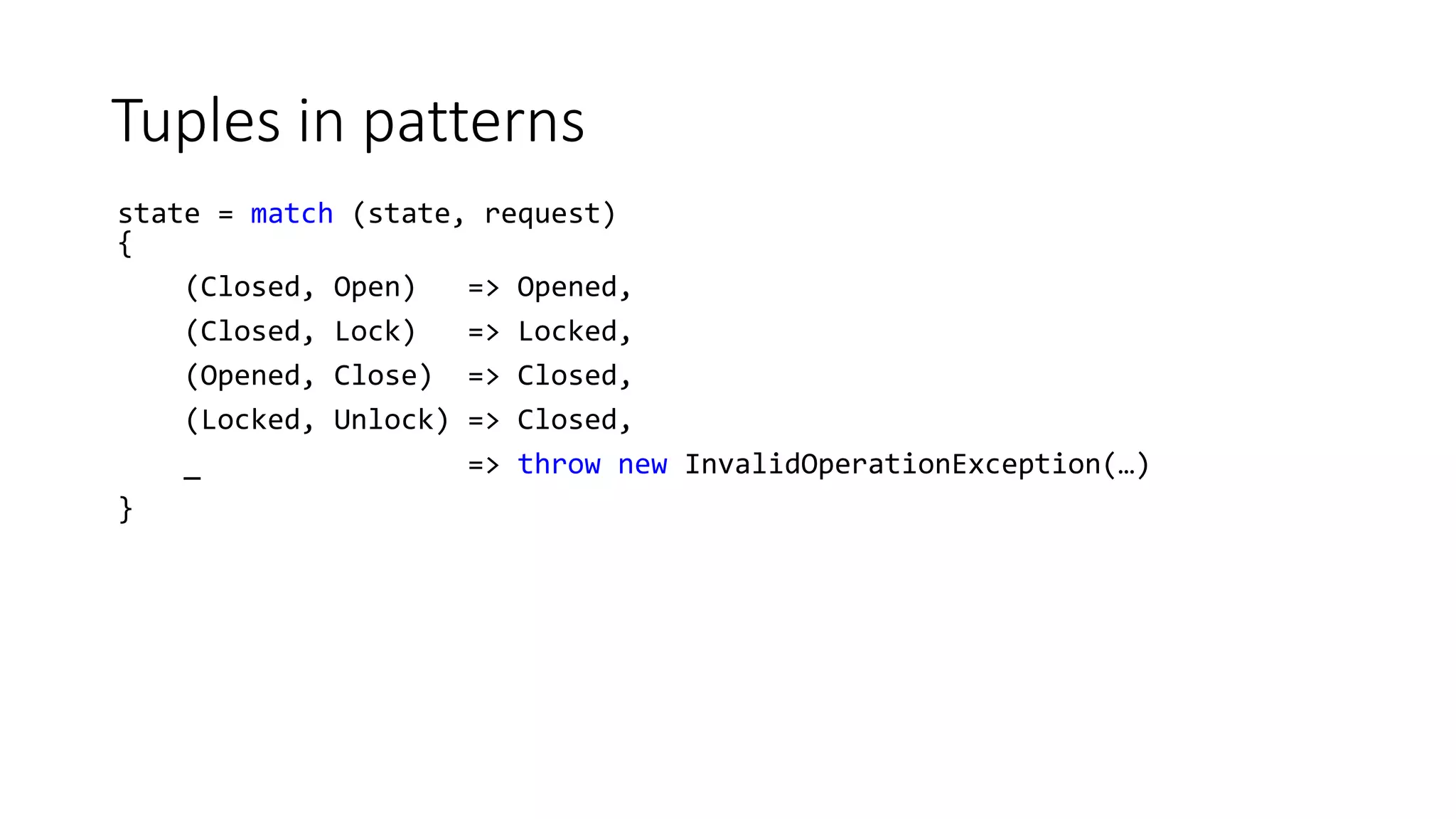
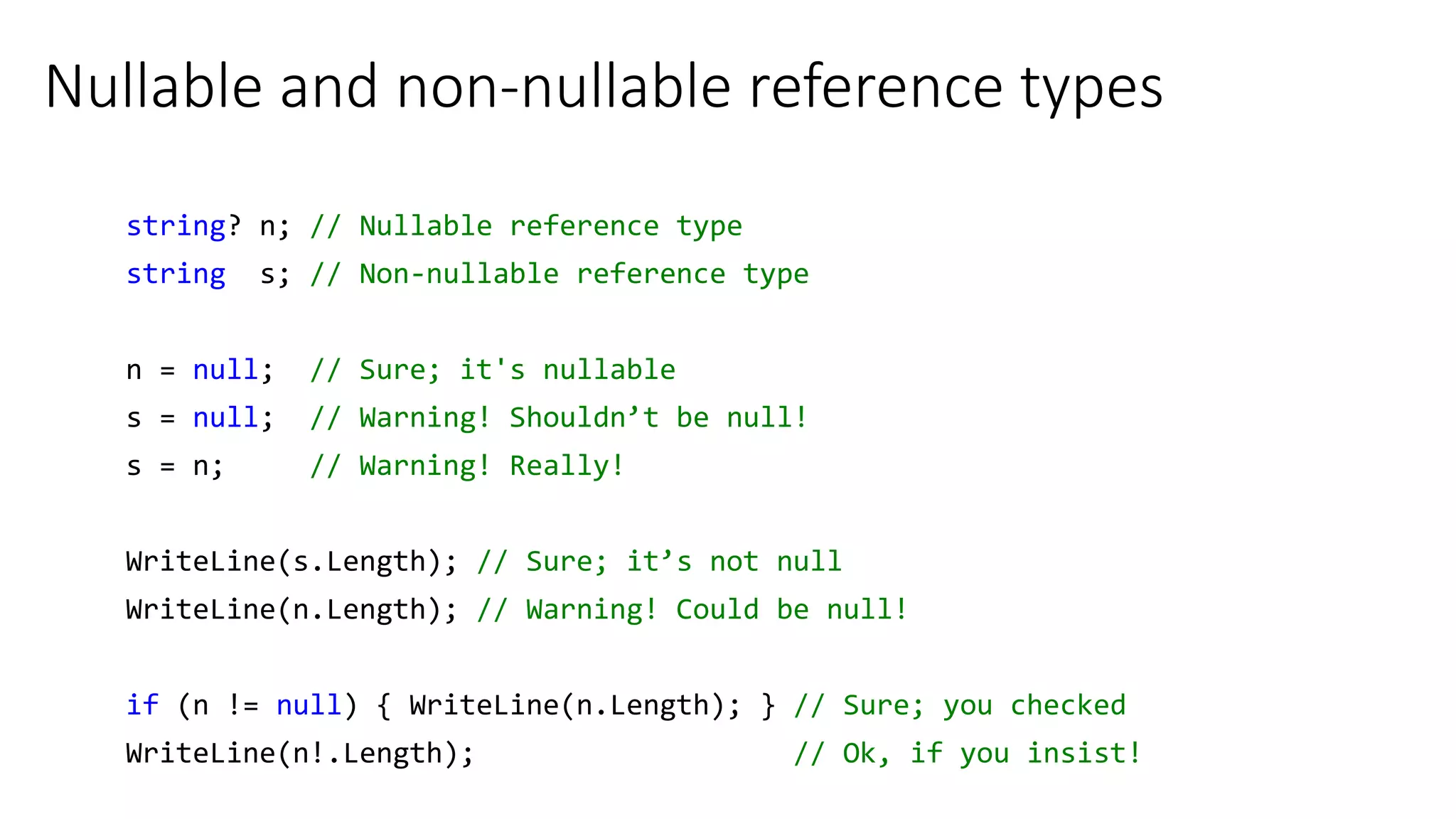
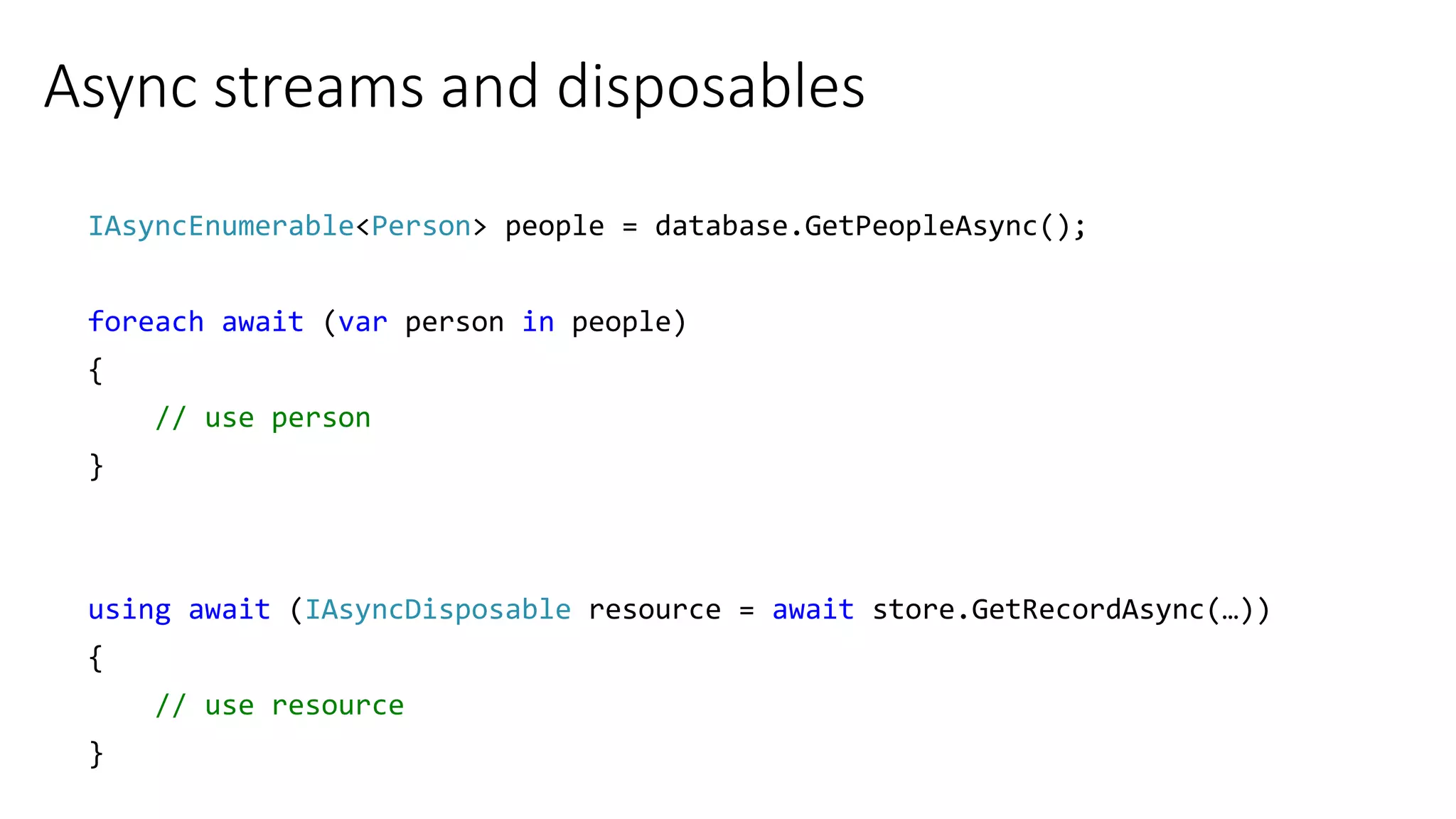
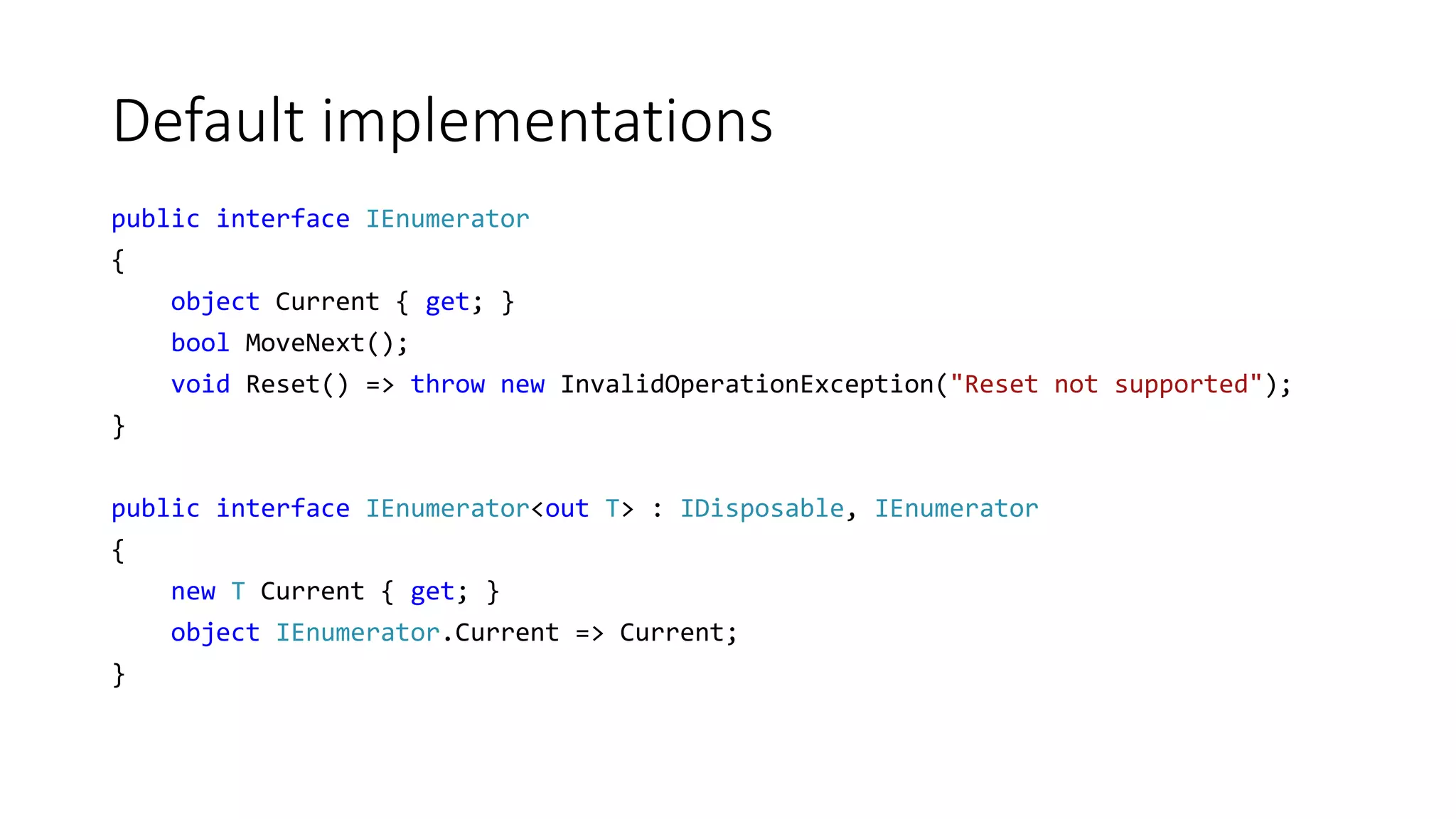
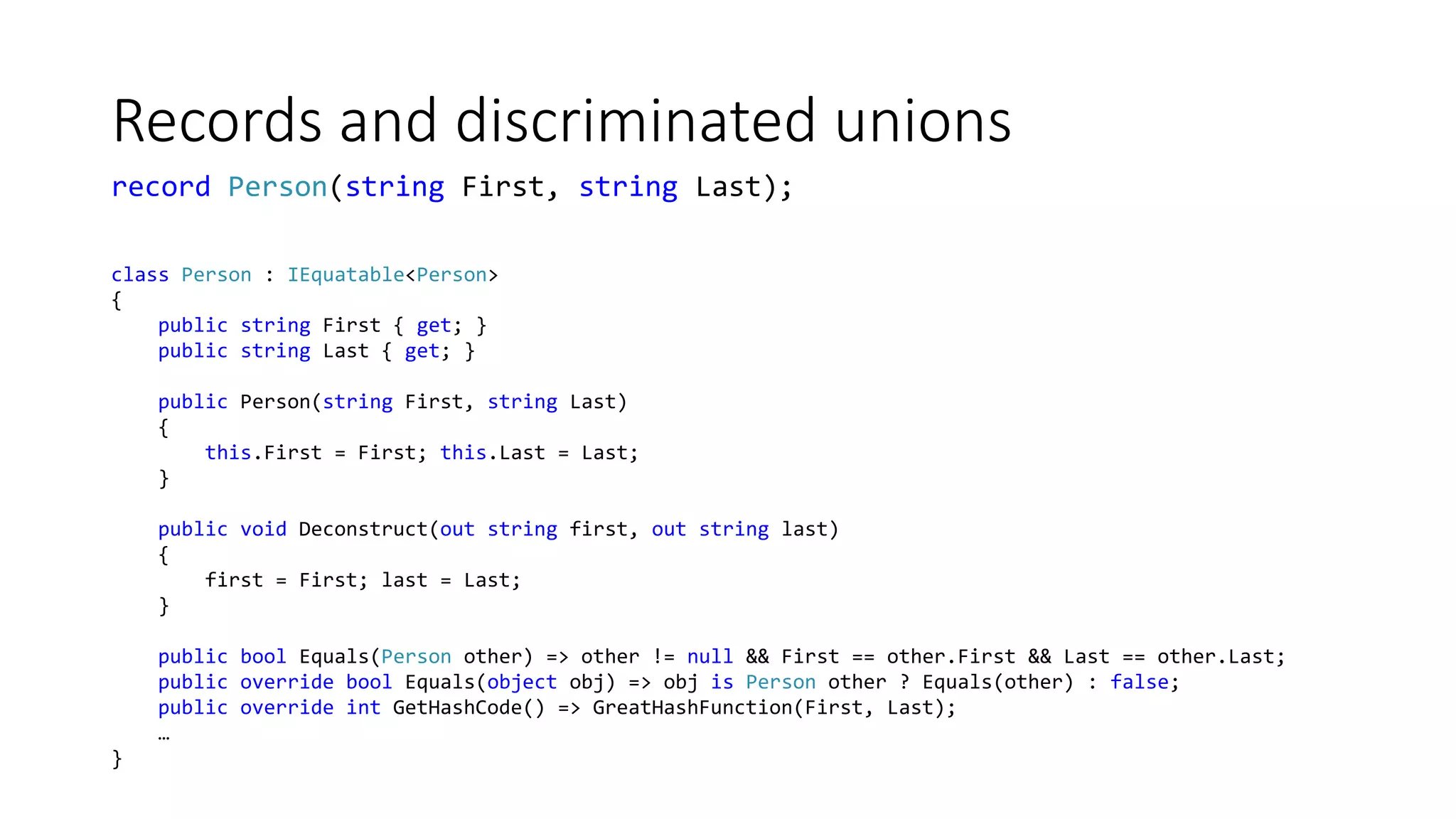
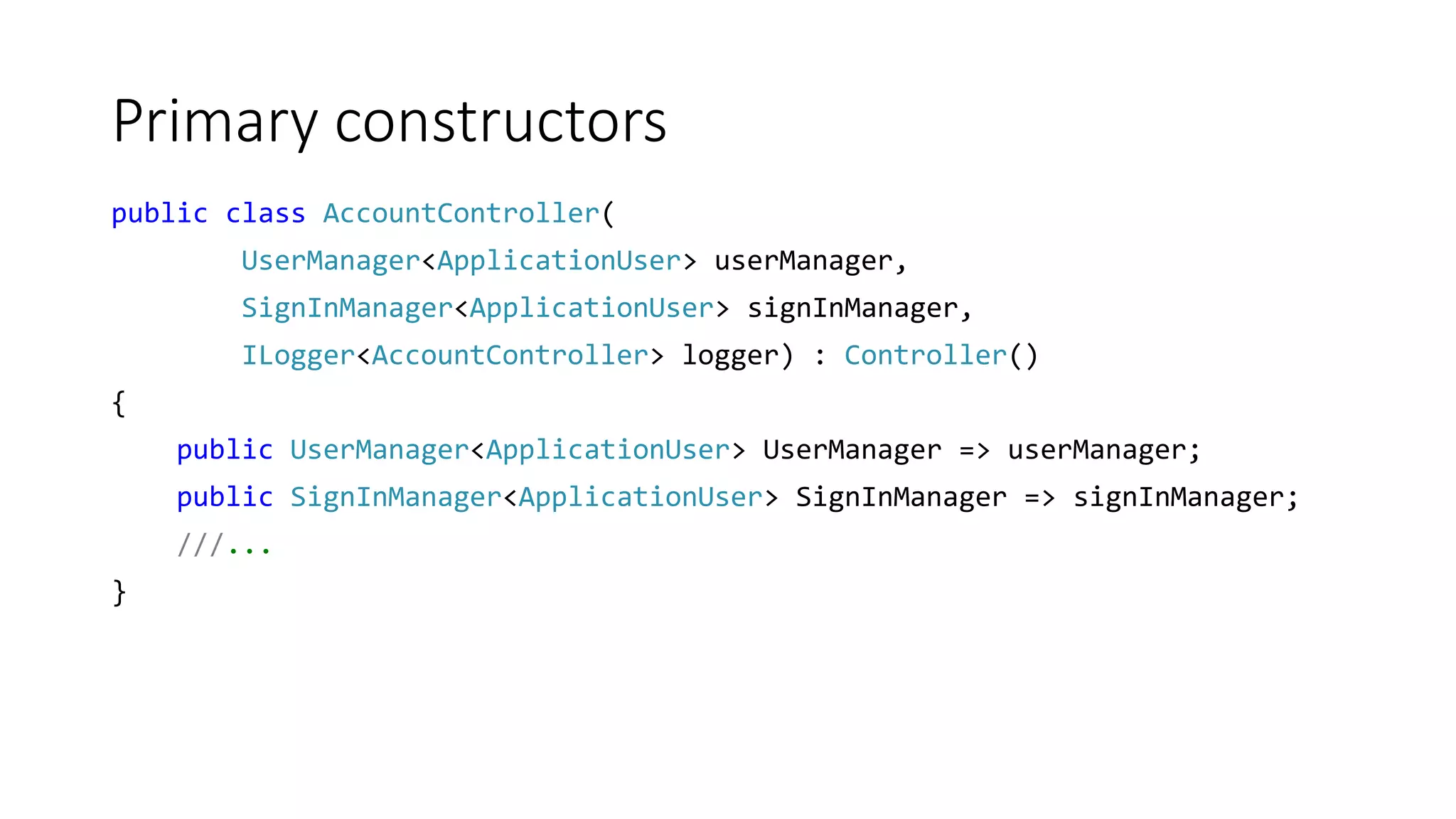
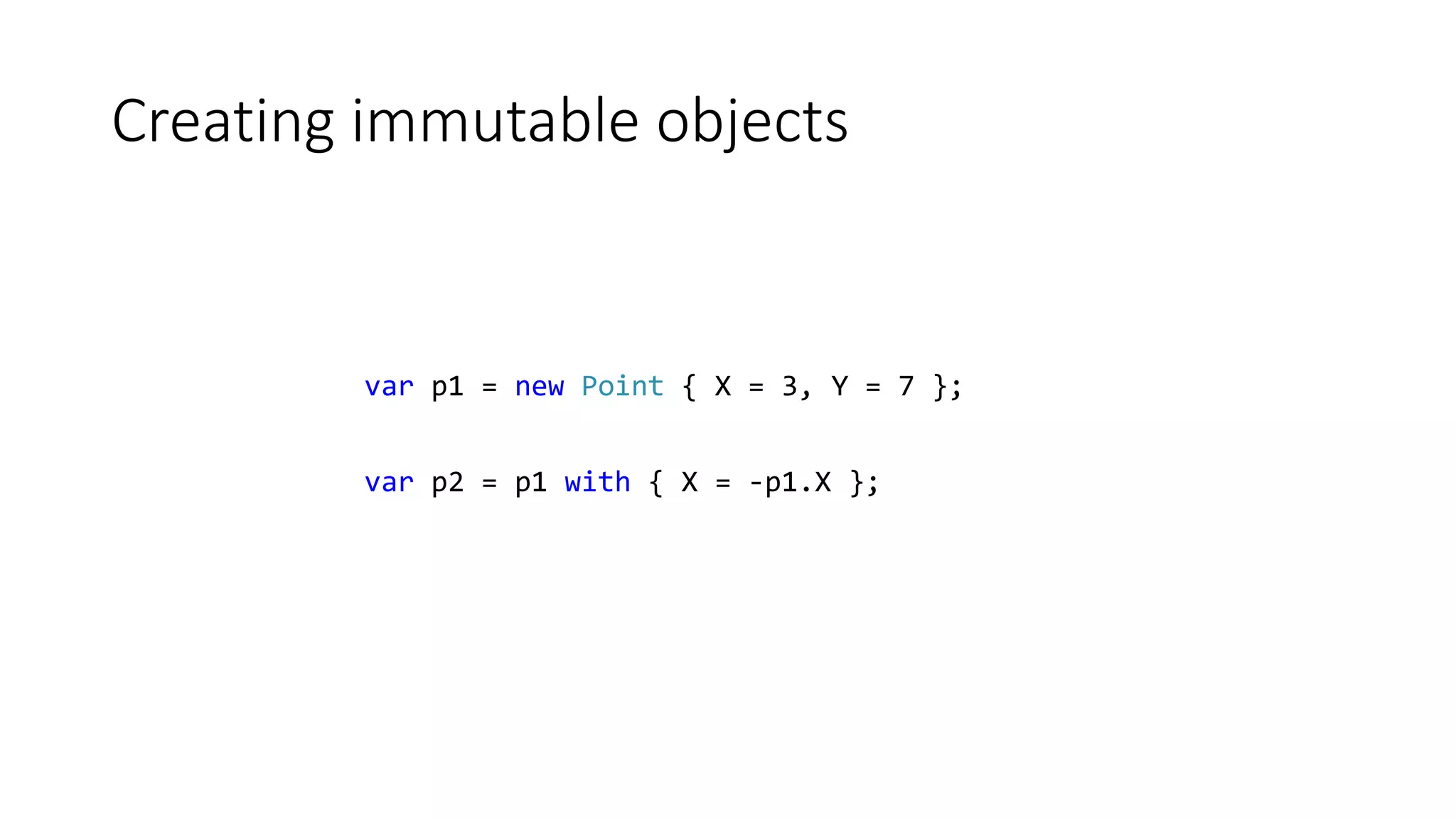
![Extension everything
extension Enrollee extends Person
{
// static field
static Dictionary<Person, Professor> enrollees = new();
// instance method
public void Enroll(Professor supervisor) { enrollees[this] = supervisor; }
// instance property
public Professor Supervisor => enrollees.TryGetValue(this, out var supervisor) ? supervisor : null;
// static property
public static ICollection<Person> Students => enrollees.Keys;
// instance constructor
public Person(string name, Professor supervisor) : this(name) { this.Enroll(supervisor); }
}](https://image.slidesharecdn.com/nextdotnetandcsharp-170301224114/75/Next-NET-and-C-37-2048.jpg)
